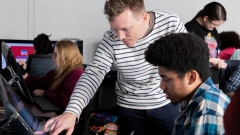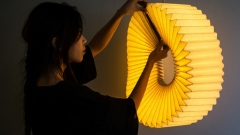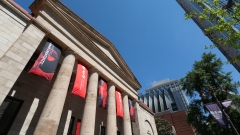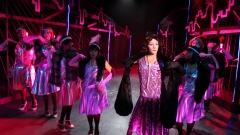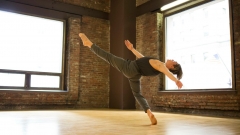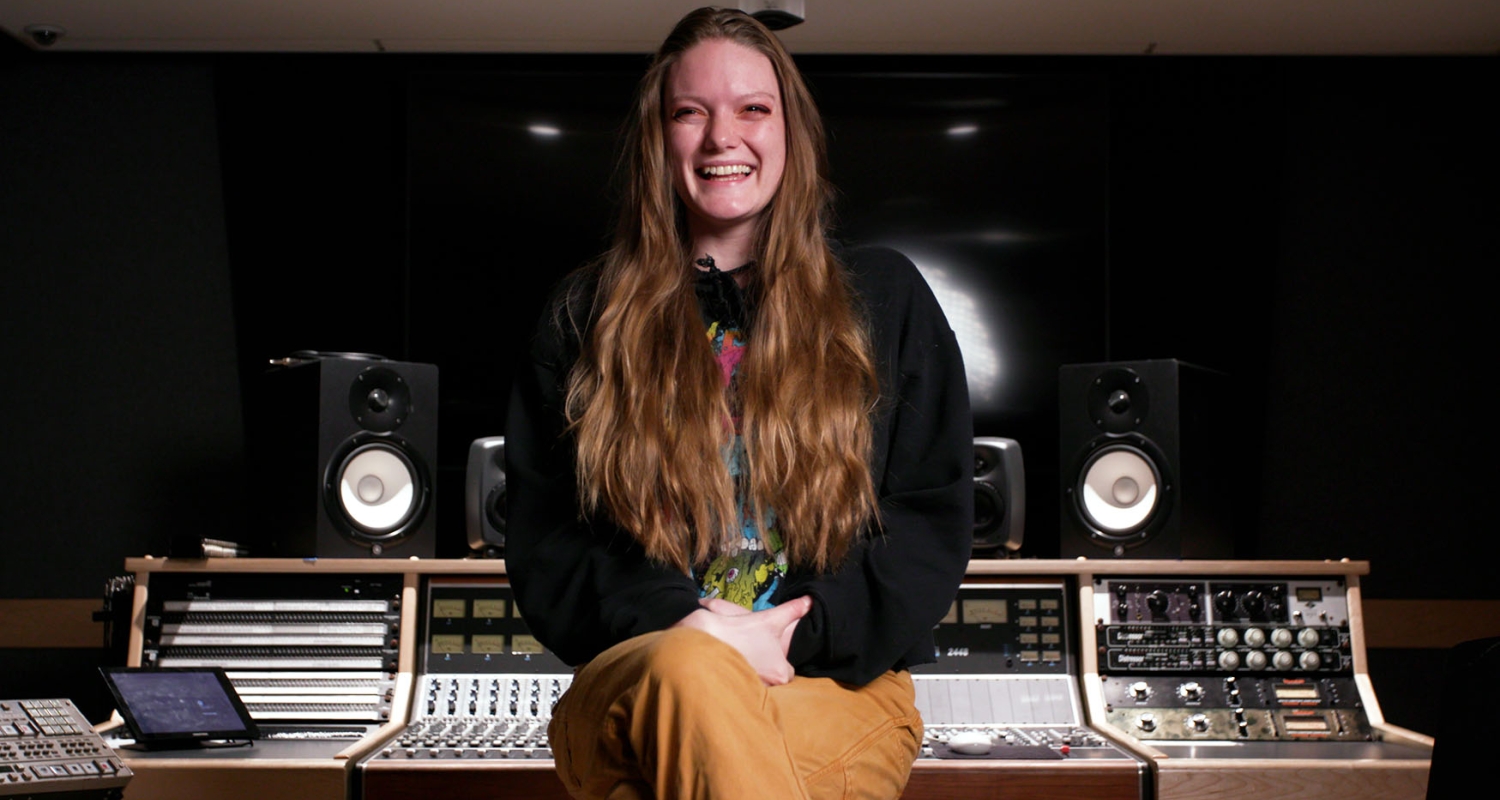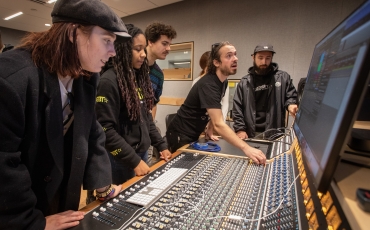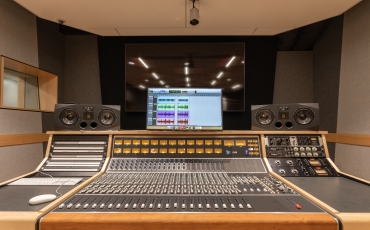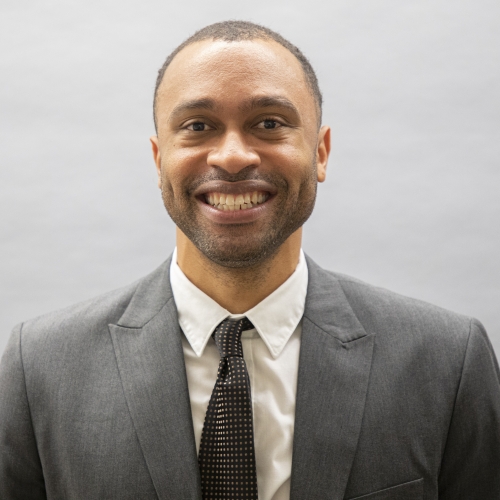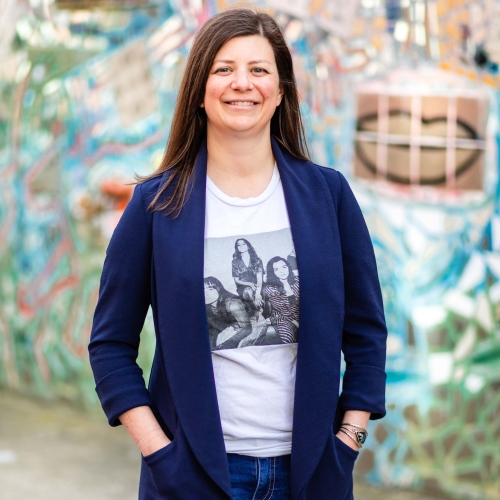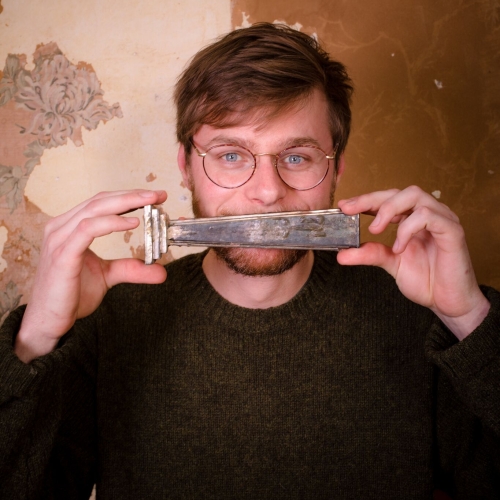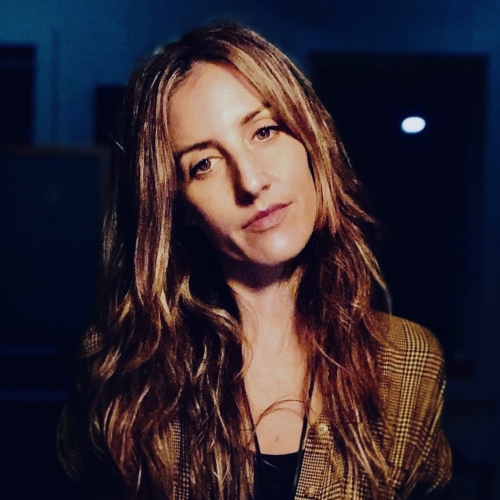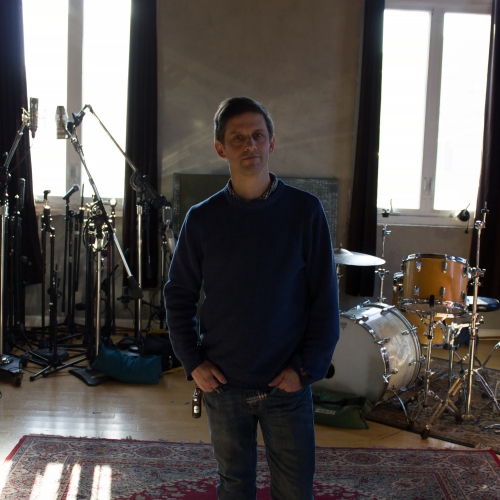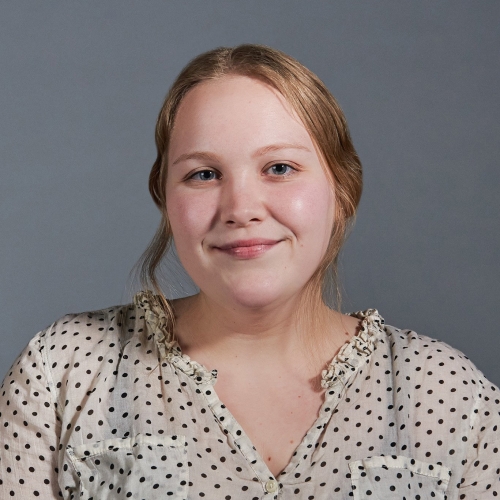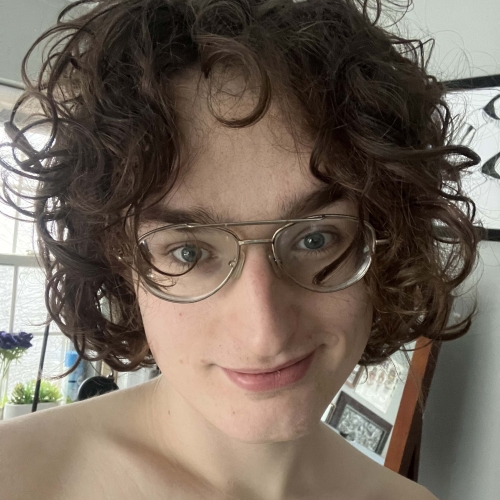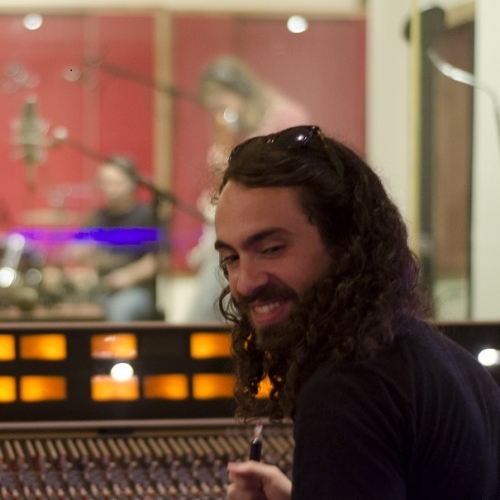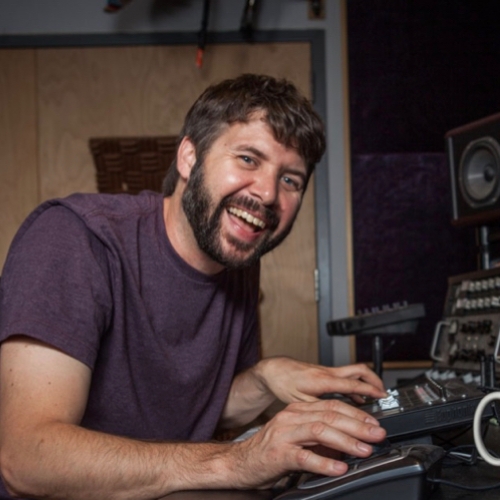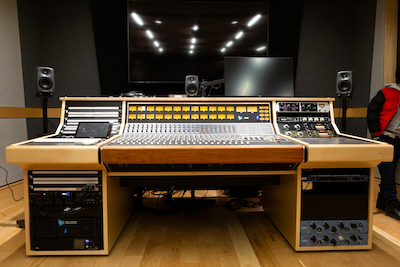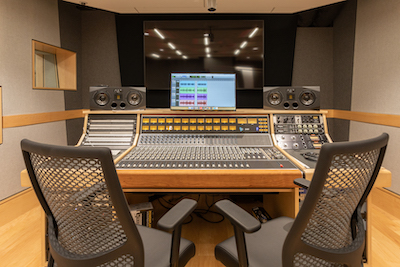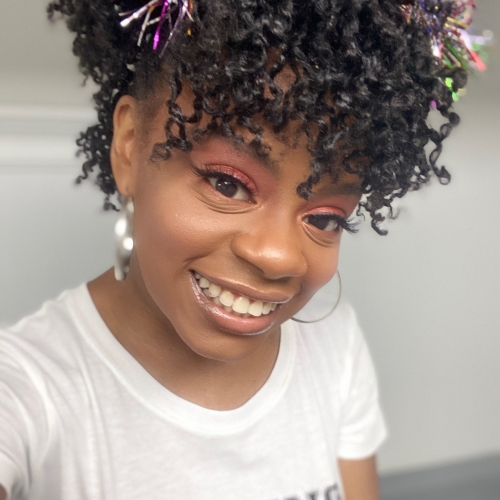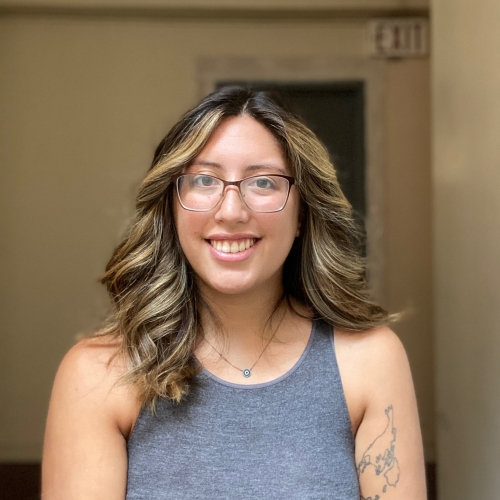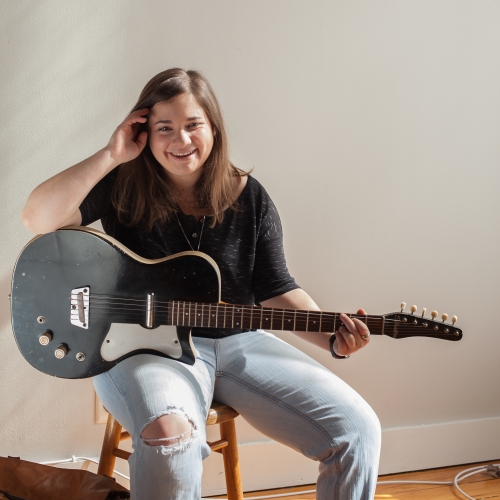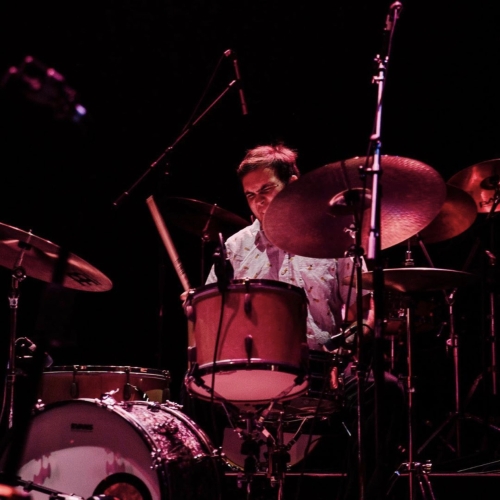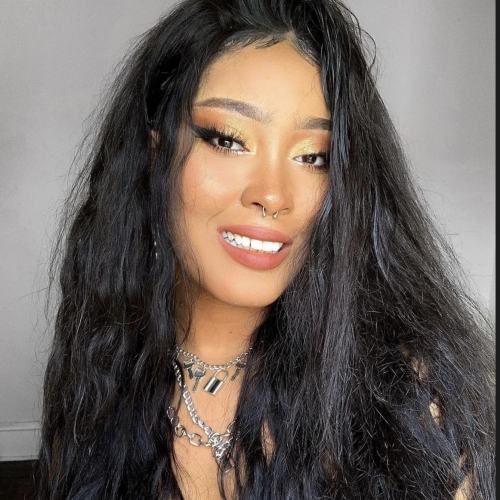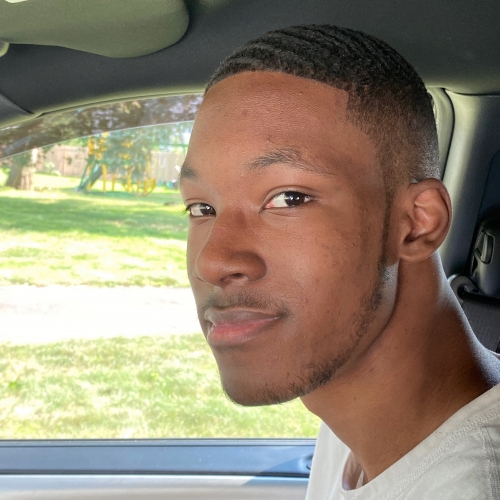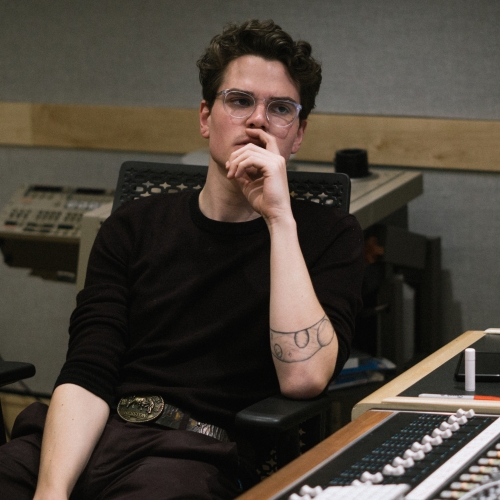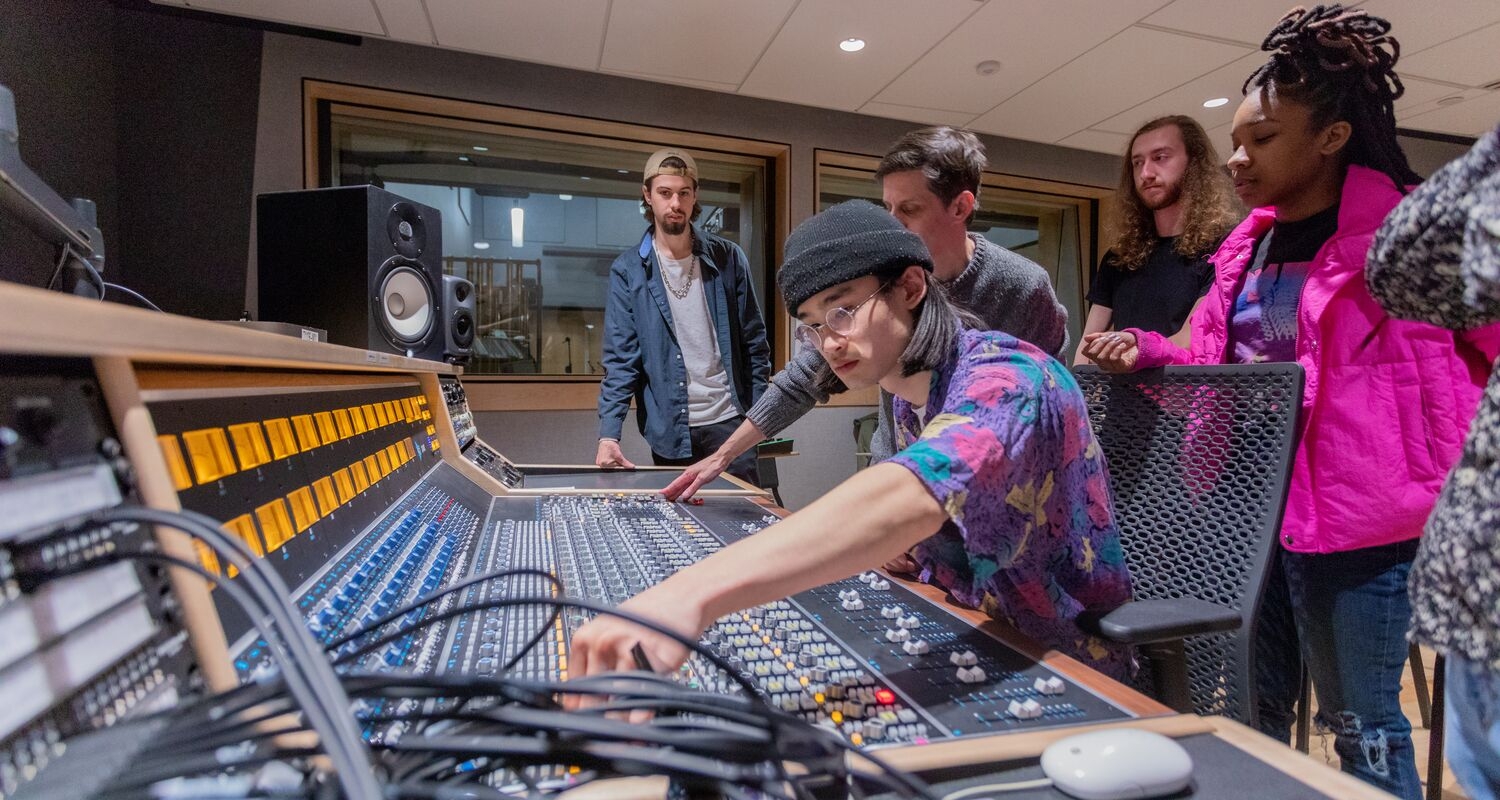
Music Business, Entrepreneurship & Technology (BS)
Music Business Major
In today’s global music industry, the tasks of recording, producing, mixing, financing, marketing and promoting music are becoming more entrepreneurial than corporate. And in the top-ranked Music Business, Entrepreneurship & Technology (MBET) Bachelor of Science (BS) degree program at University of the Arts in Philadelphia, you’ll learn the most up-to-date and comprehensive skills you’ll need to succeed and excel in where the industry’s going.
Many Career Paths for One Major
Our music business program is especially suited for those willing to experiment, push boundaries and envision new models for the future of the industry. Whether it’s running a recording studio, building audio electronics, marketing for artists and venues, or working with licensing and publishing, the MBET curriculum can be molded to fit your individual needs while preparing you for your desired career.
Different Learning Opportunities
The comprehensive coursework takes place in and outside the classroom, and you’ll network and make connections through internship placements at some of Philadelphia’s most reputable institutions. Our accomplished faculty of industry professionals provides hands-on instruction in our state-of-the-art facilities, including the newly opened Laurie Wagman Recording Studios and brand-new rehearsal, classroom, office, lab and production spaces.
In 2019, the MBET bachelor’s degree program at UArts was ranked among the top 10 music business programs in the nation by Music School Central.
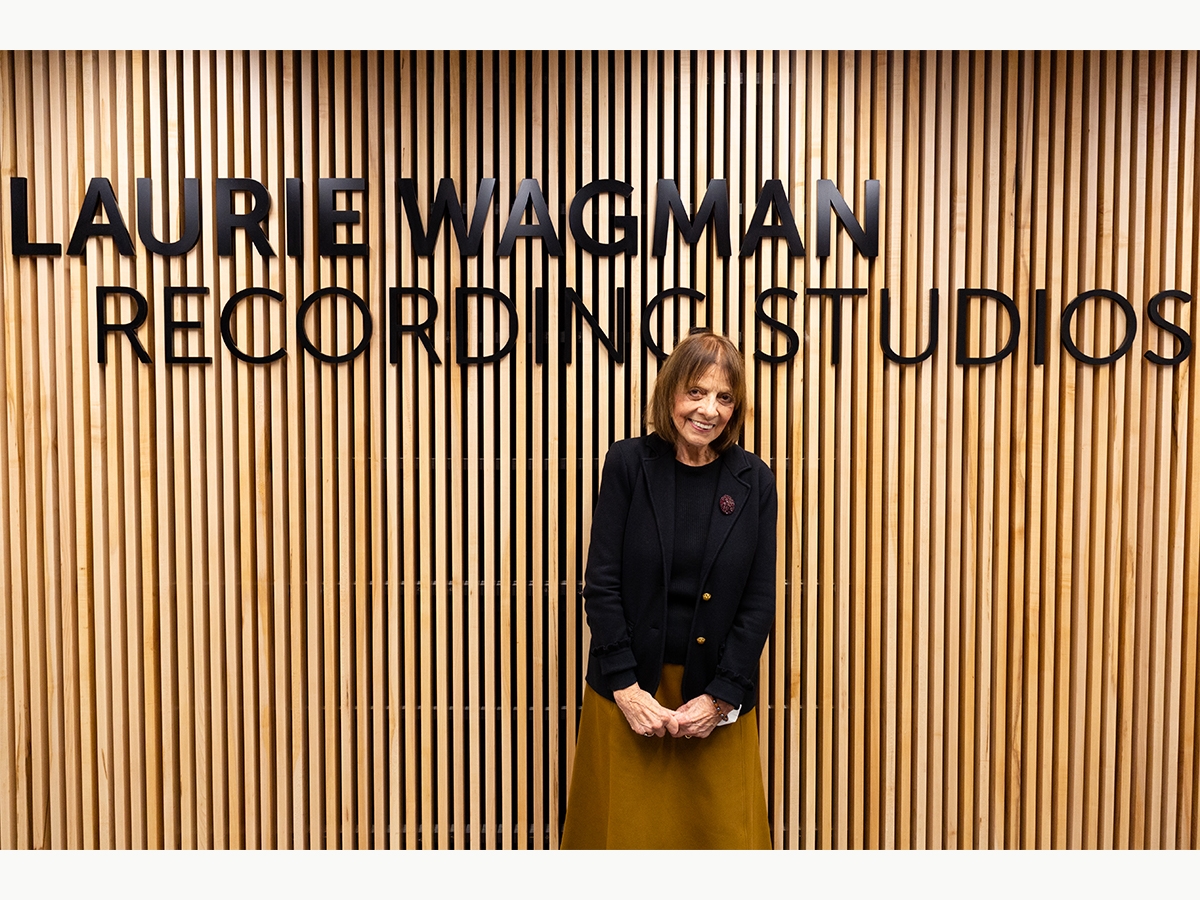
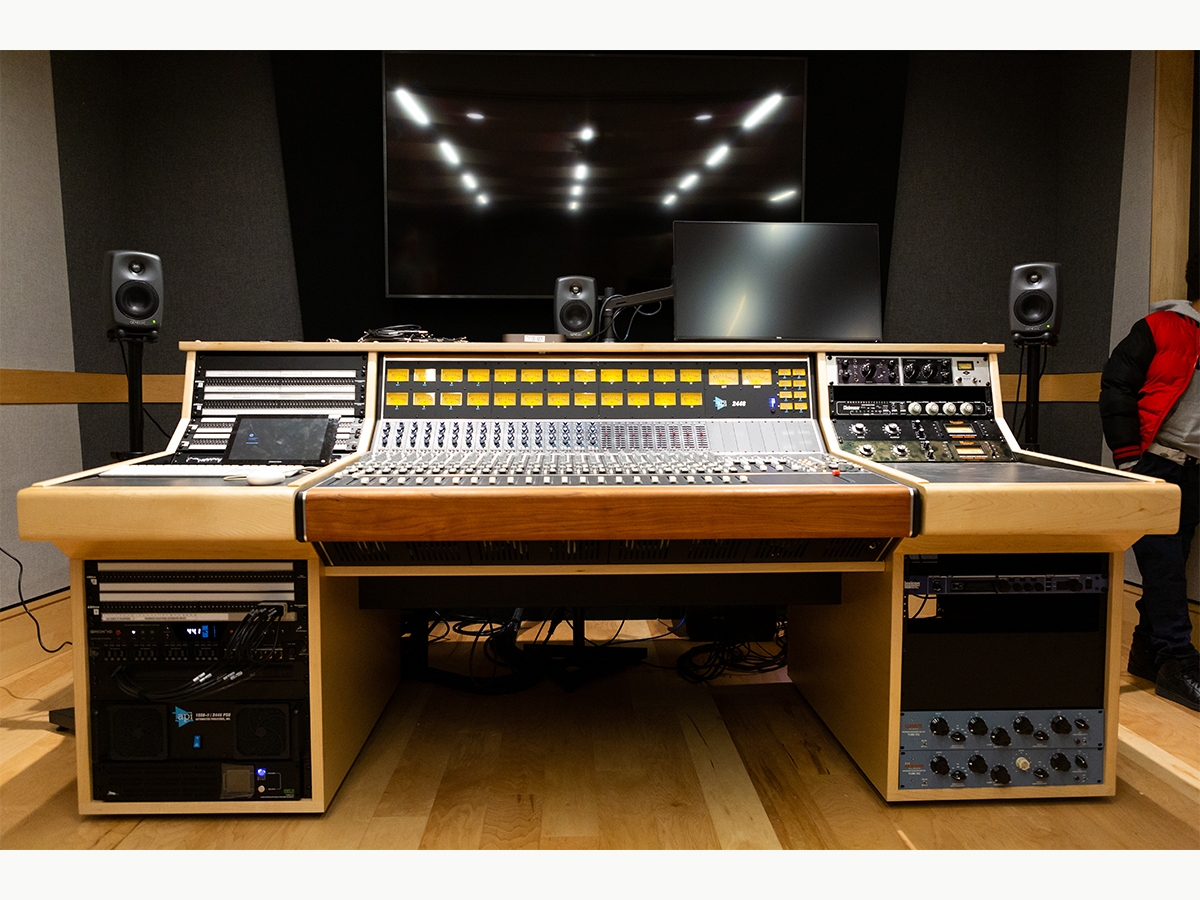
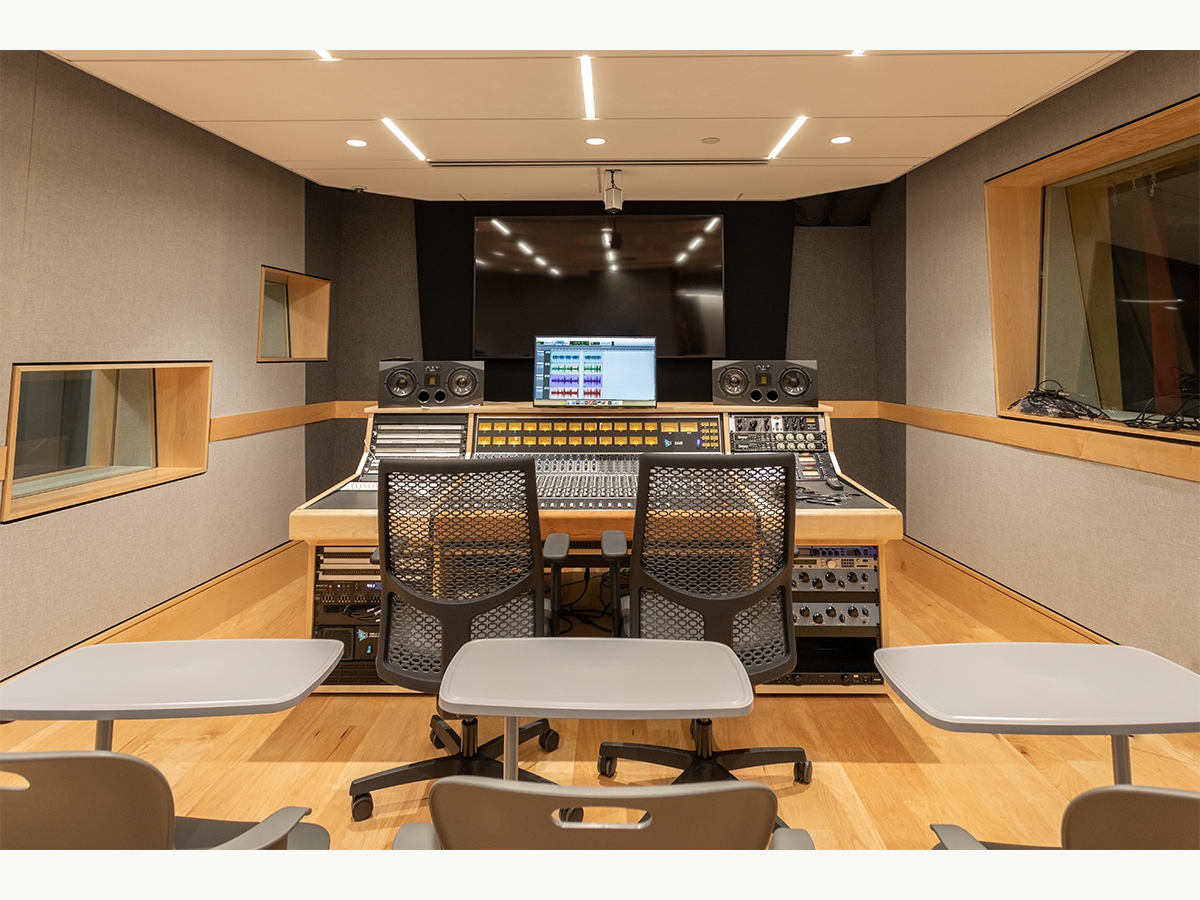
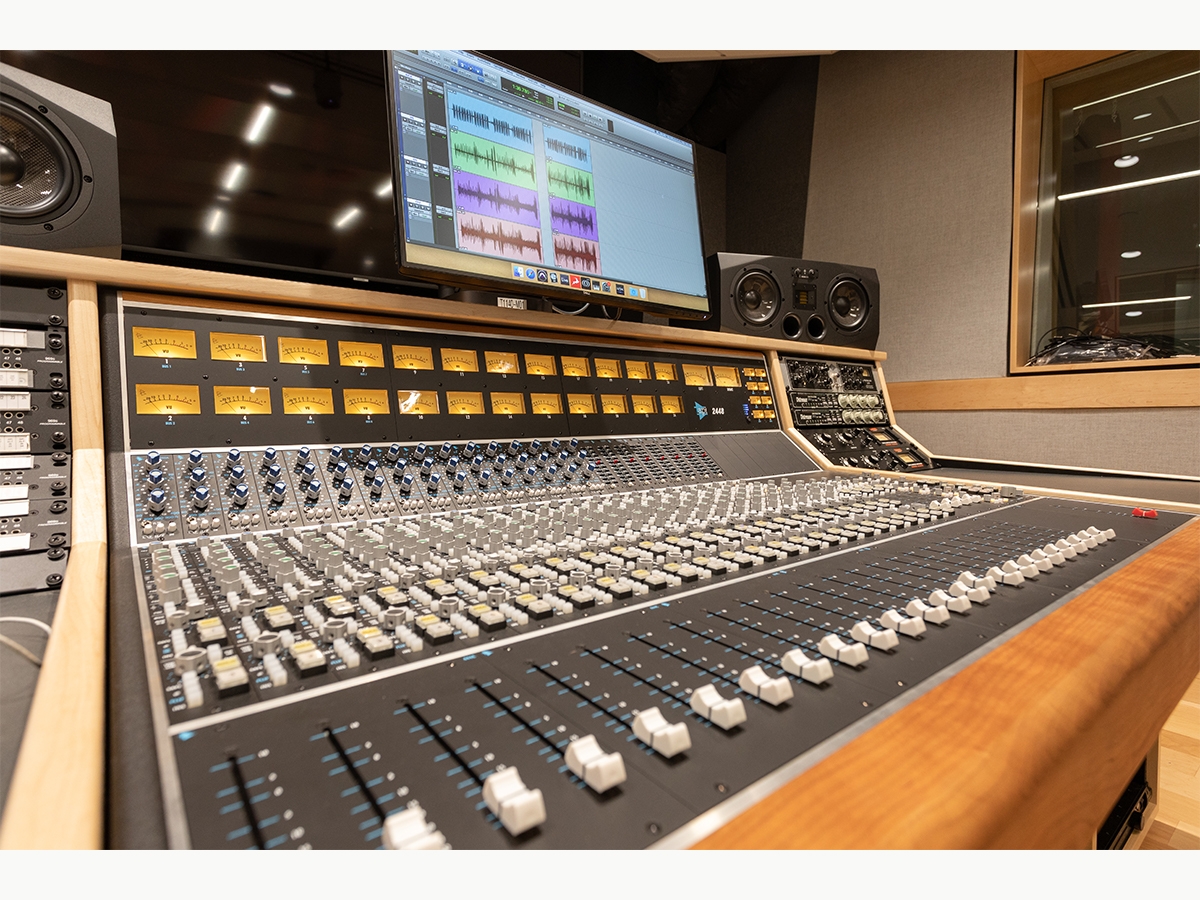
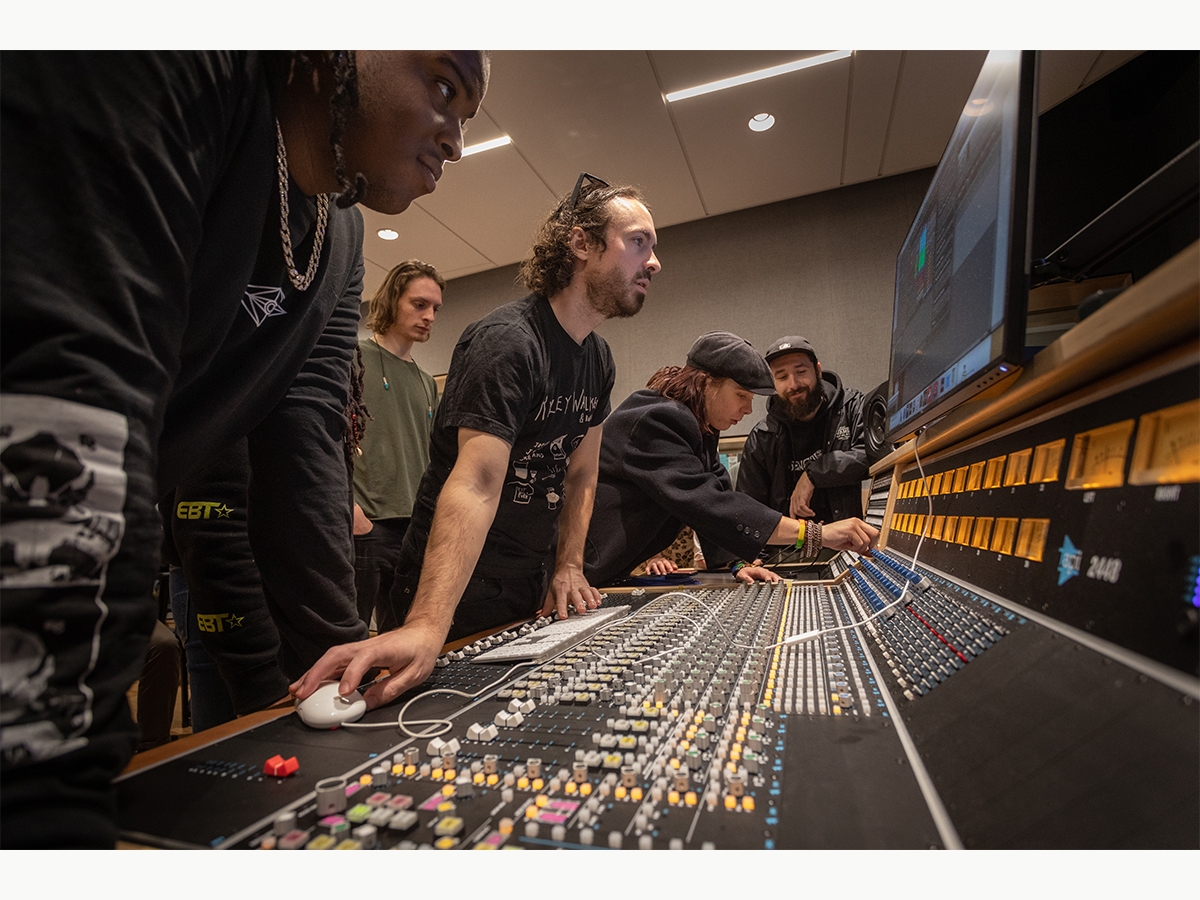
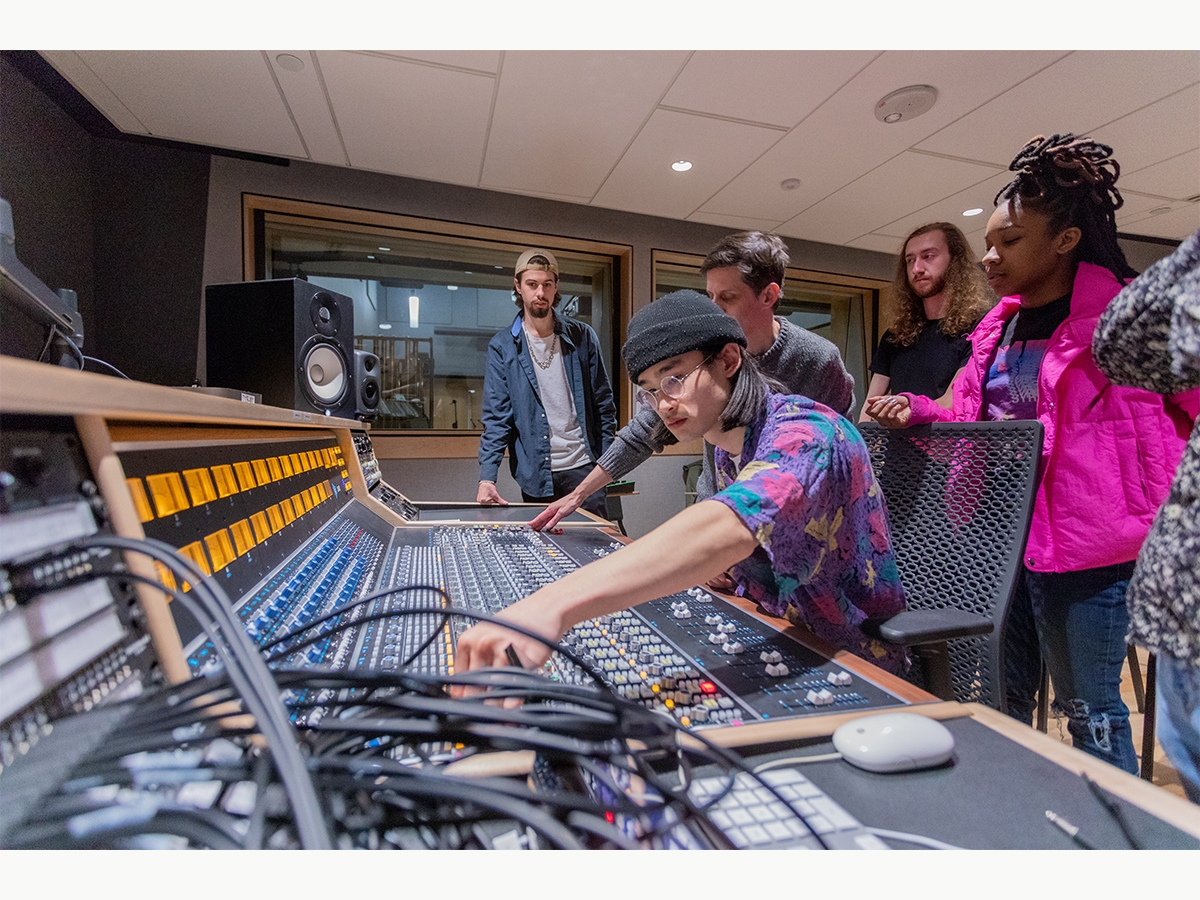
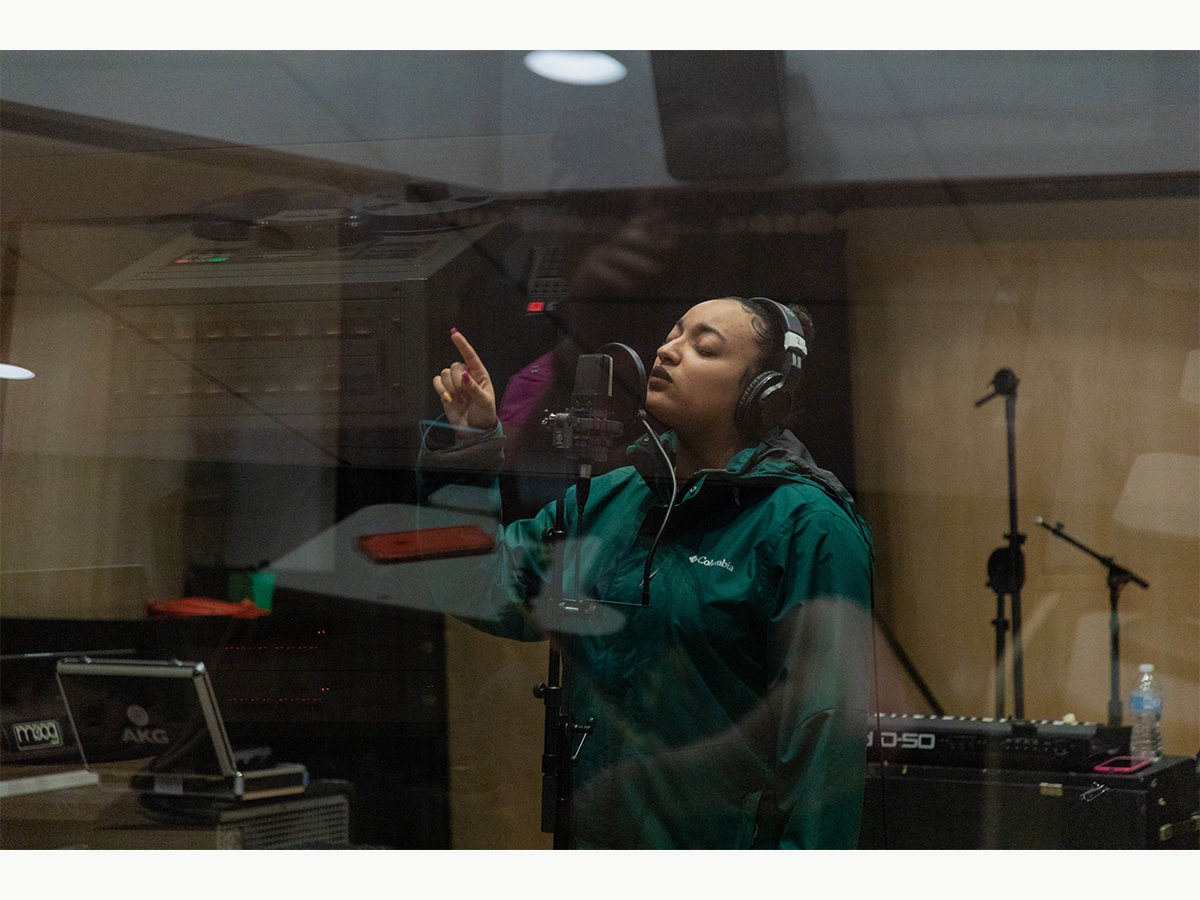
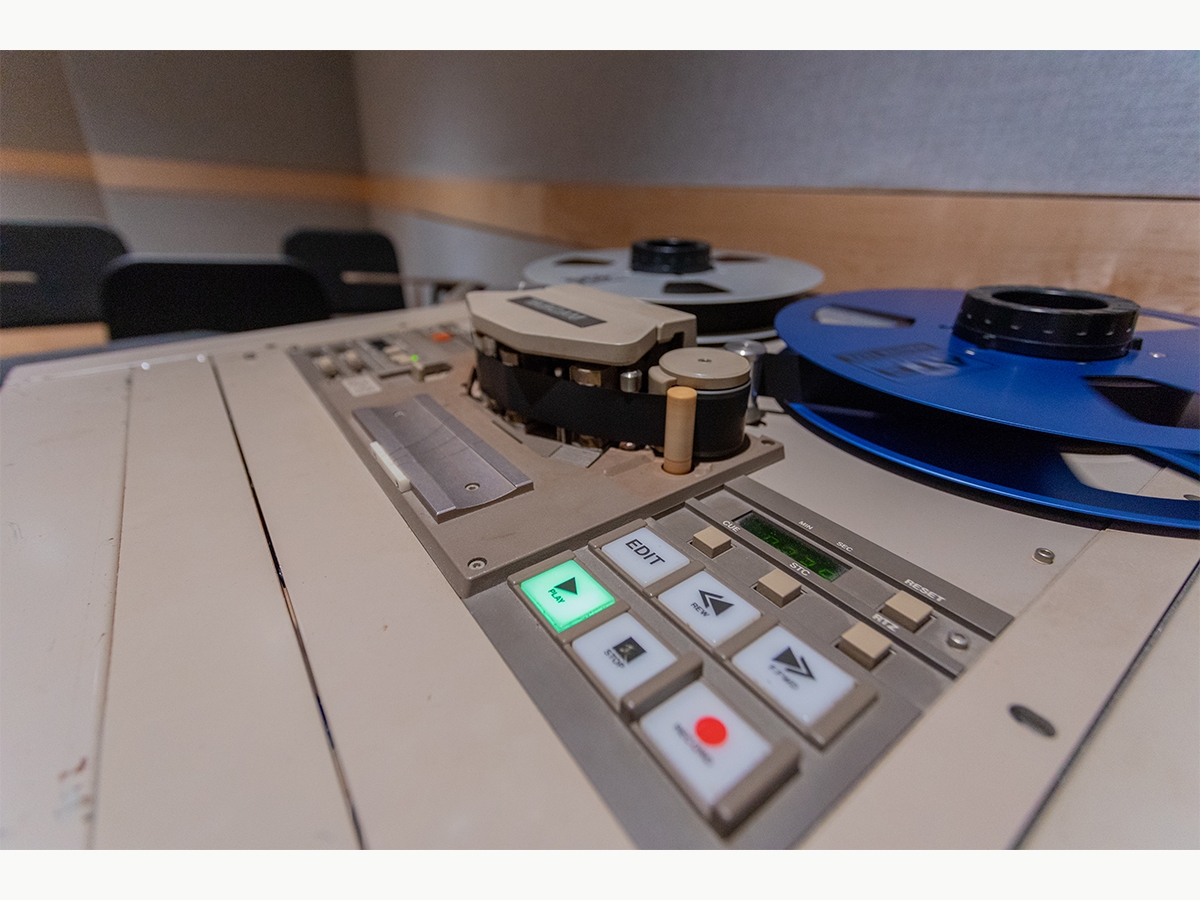
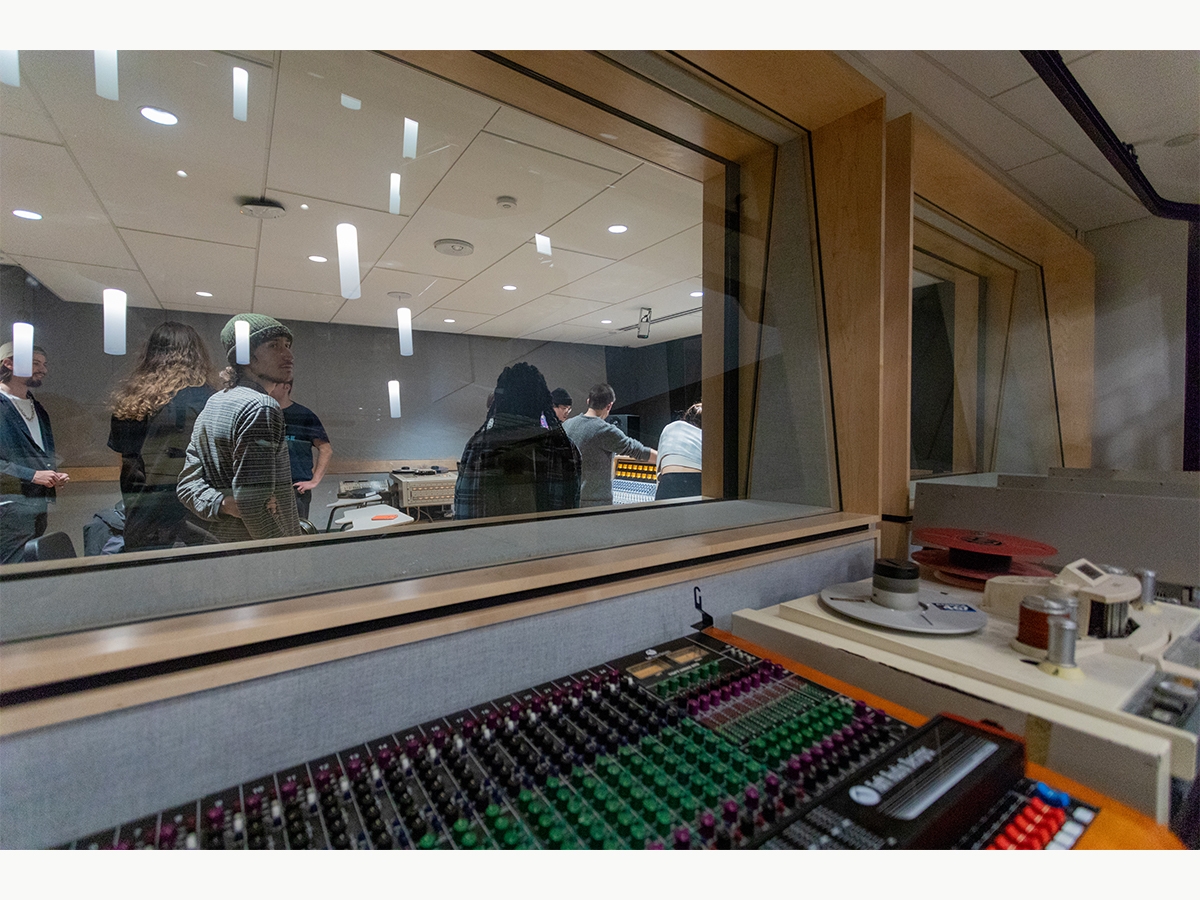
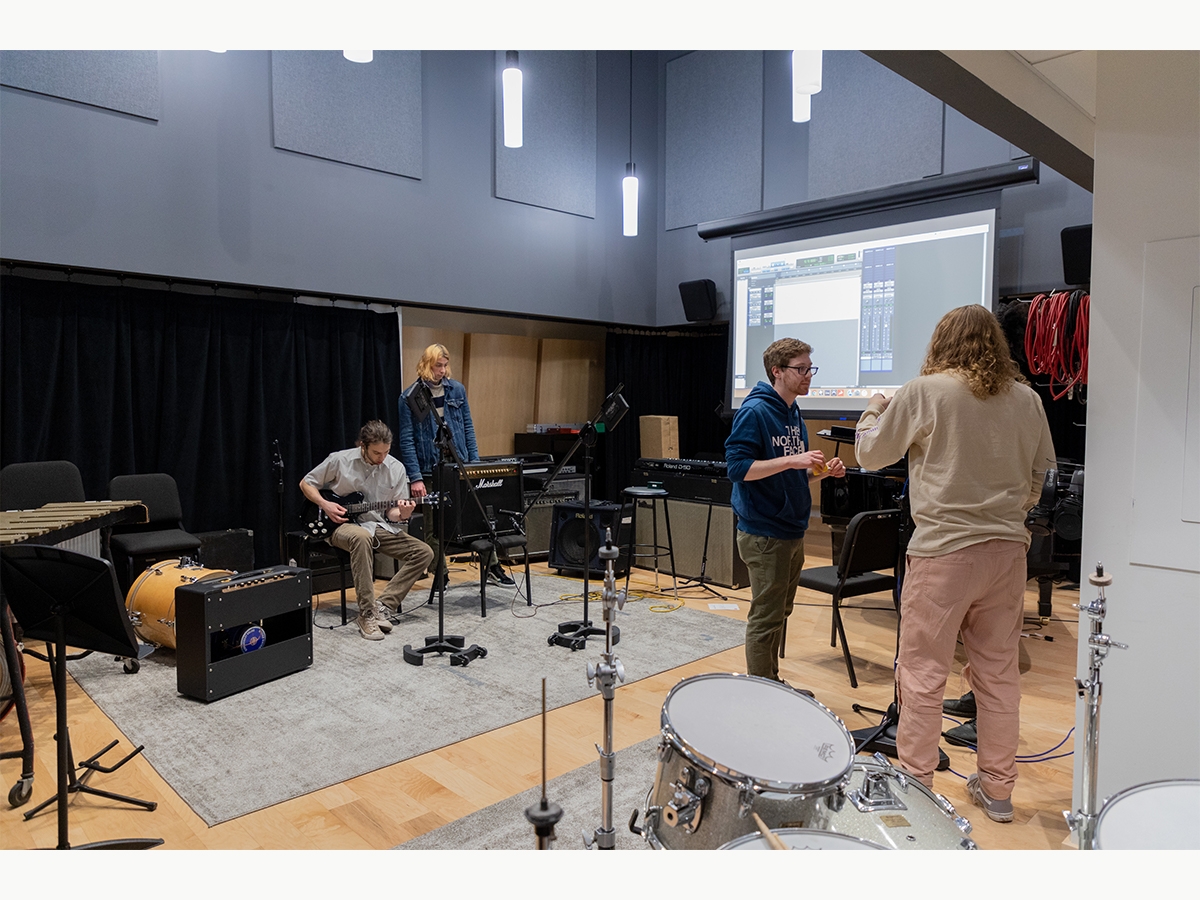
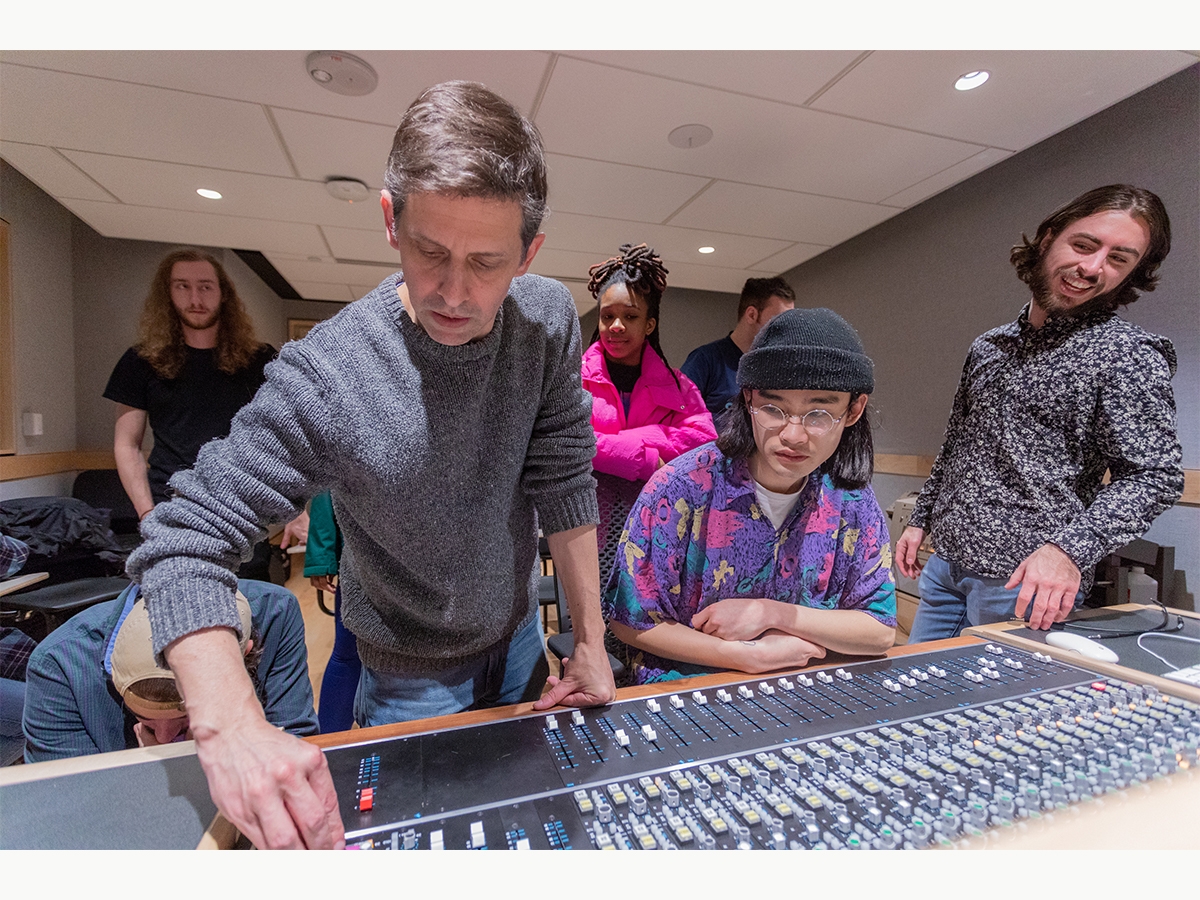
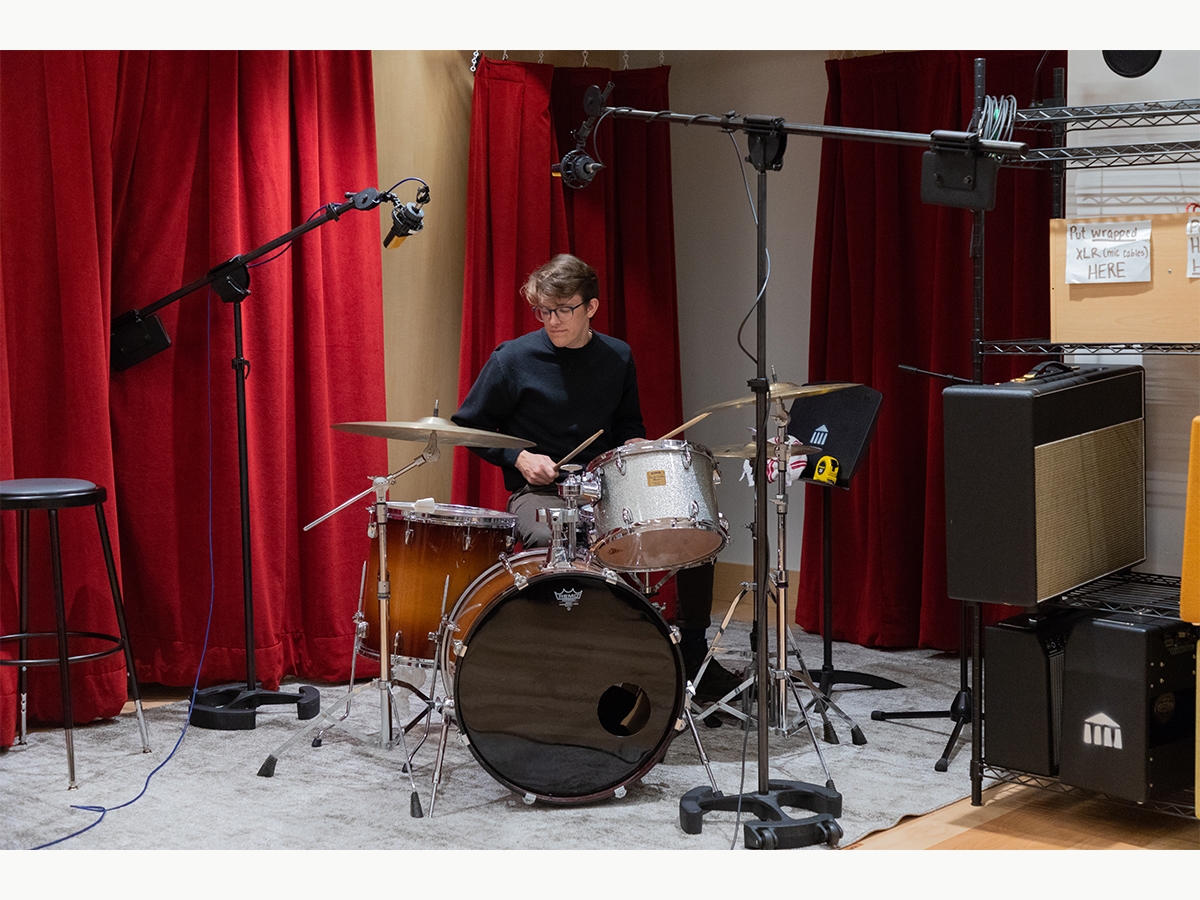
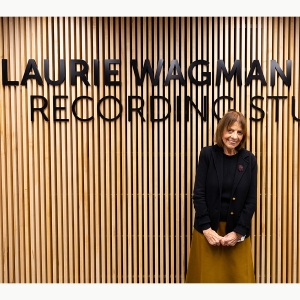
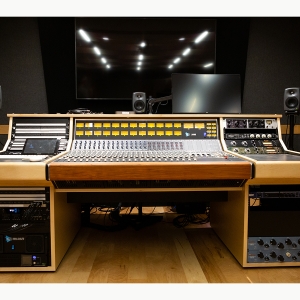
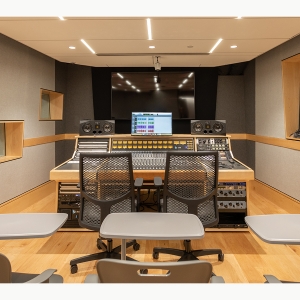
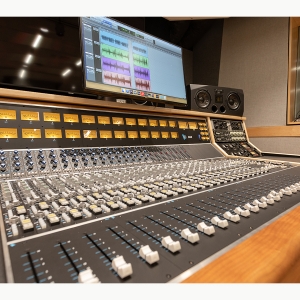
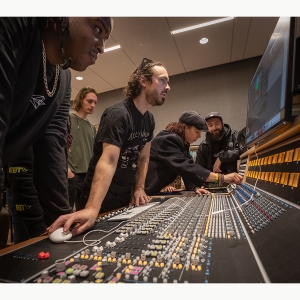
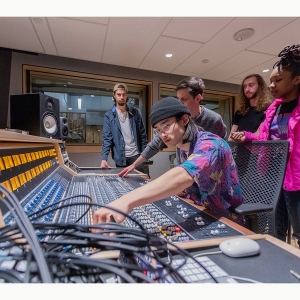
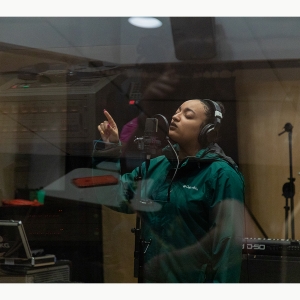
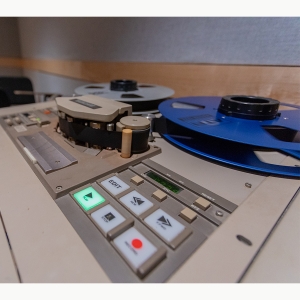
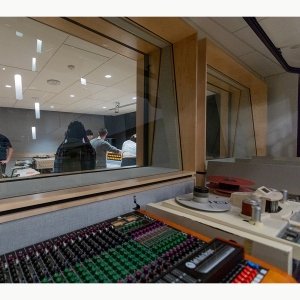
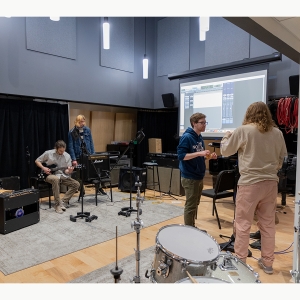
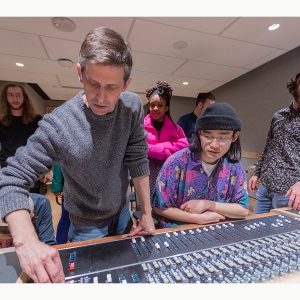
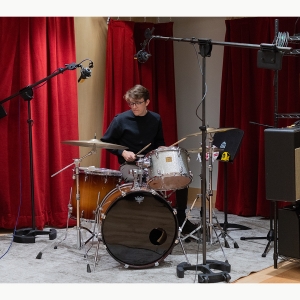
Two recording studios are equipped with state-of-the-art, 24-channel API consoles and Antelope interfaces. There is a surround sound system in Studio A, while Studio B has a pair of Adam reference monitors. Both studios have a number of outboard compressors, equalizers and other effects processors. Studio A will also function as a fully analog space equipped with a 16-track tape machine.

Explore the School of Music Graduating Student Projects & Recitals. Watch recital performances and see the Music Business, Entrepreneurship & Technology senior projects.

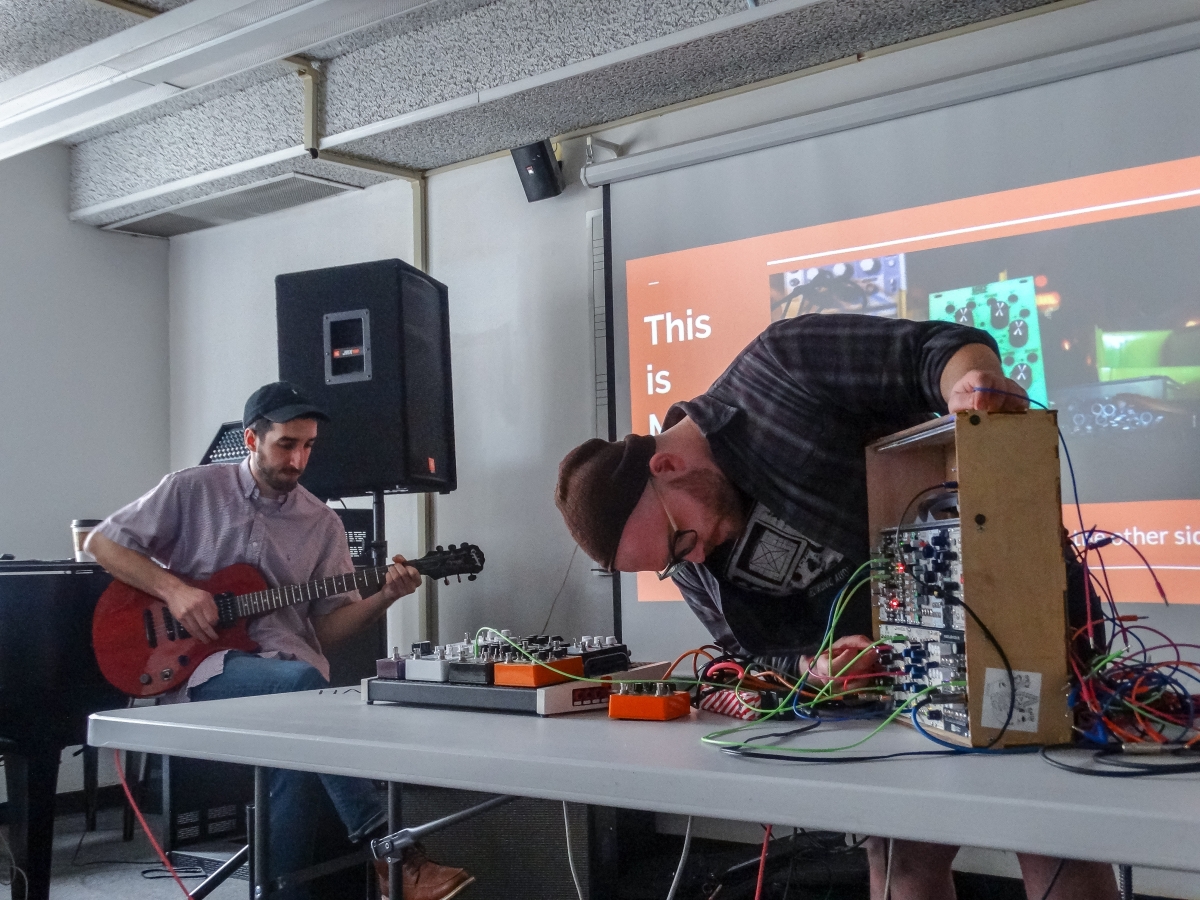
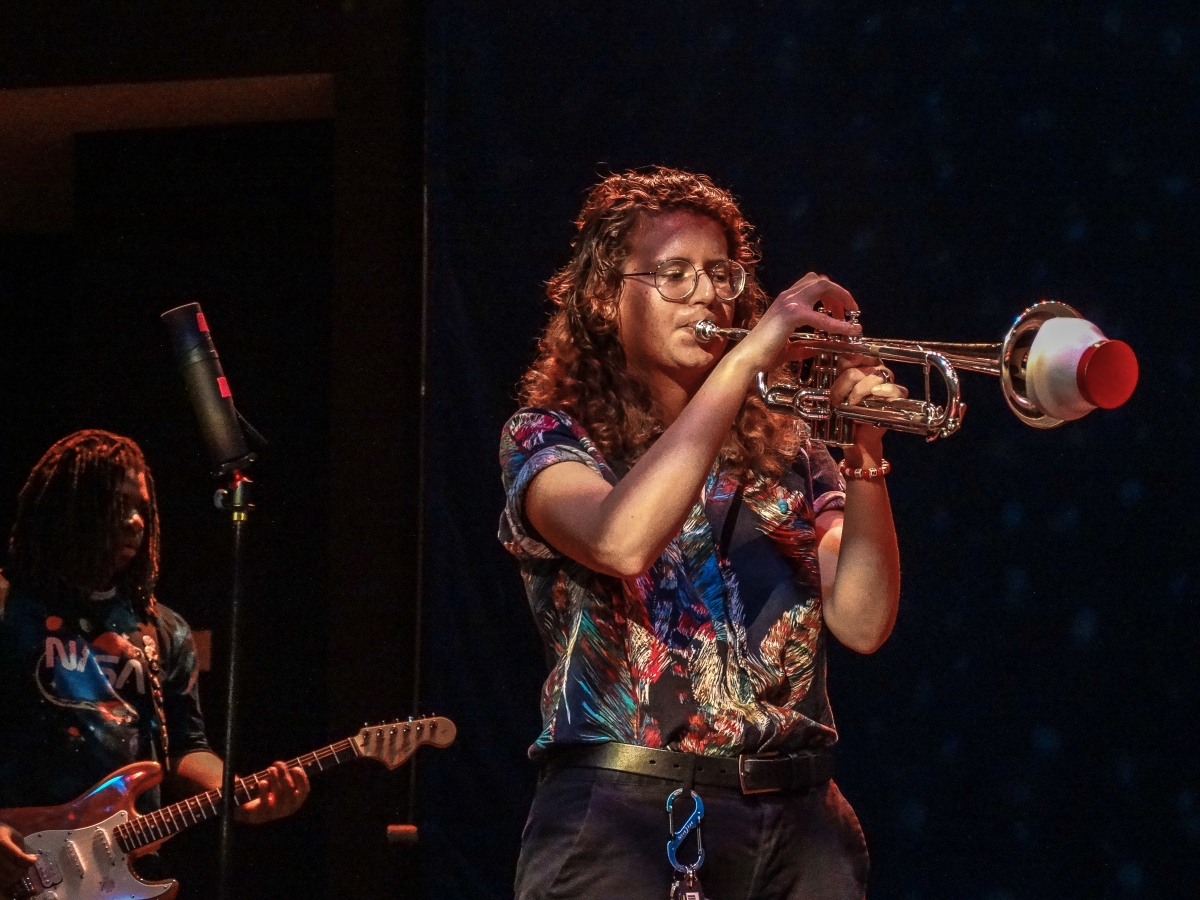
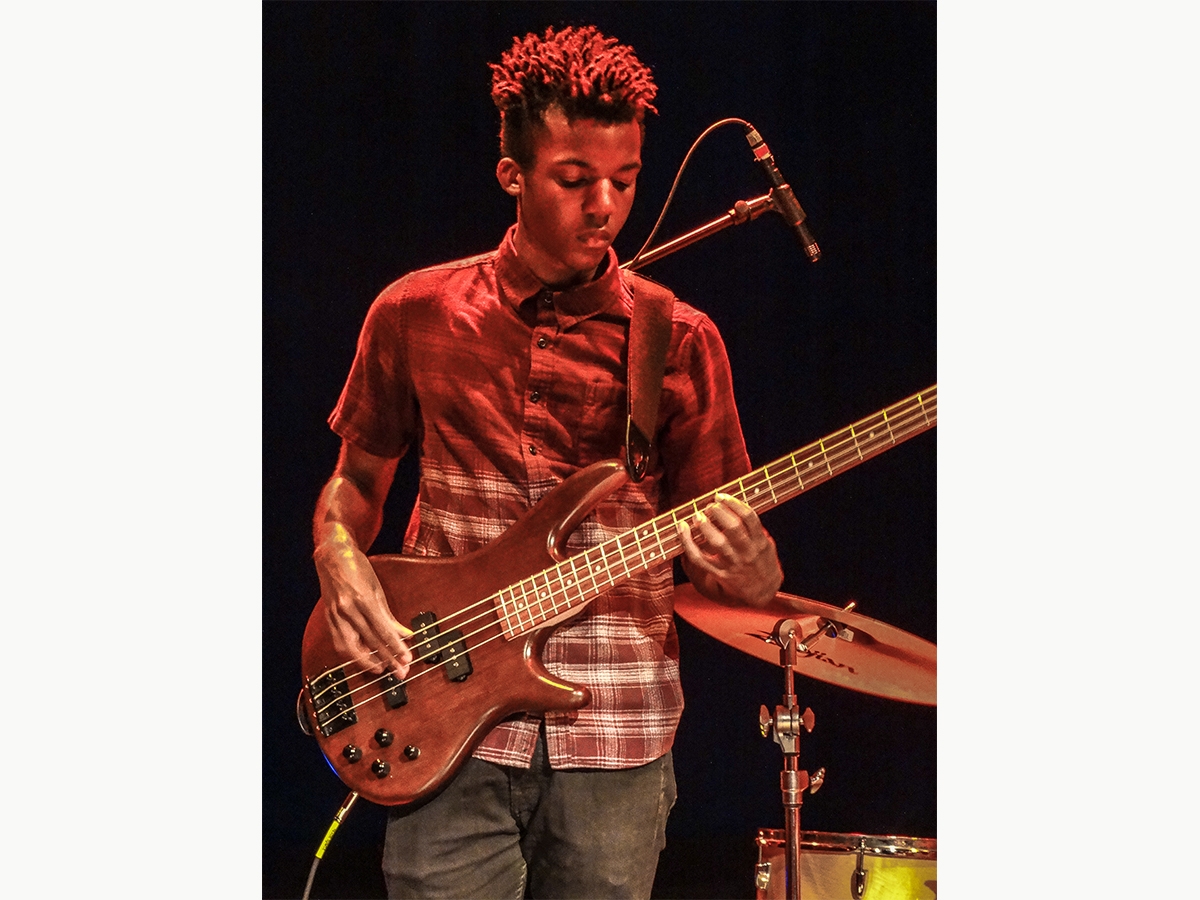
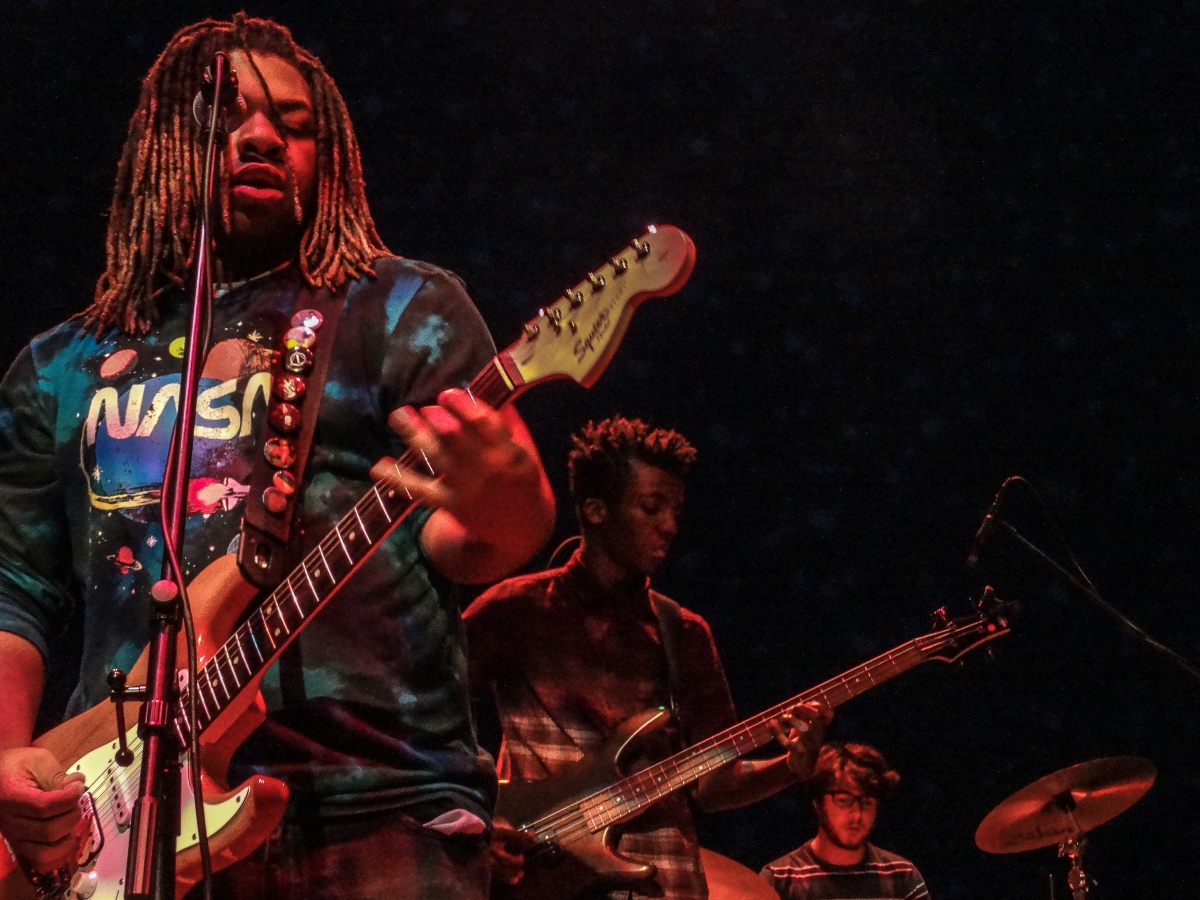
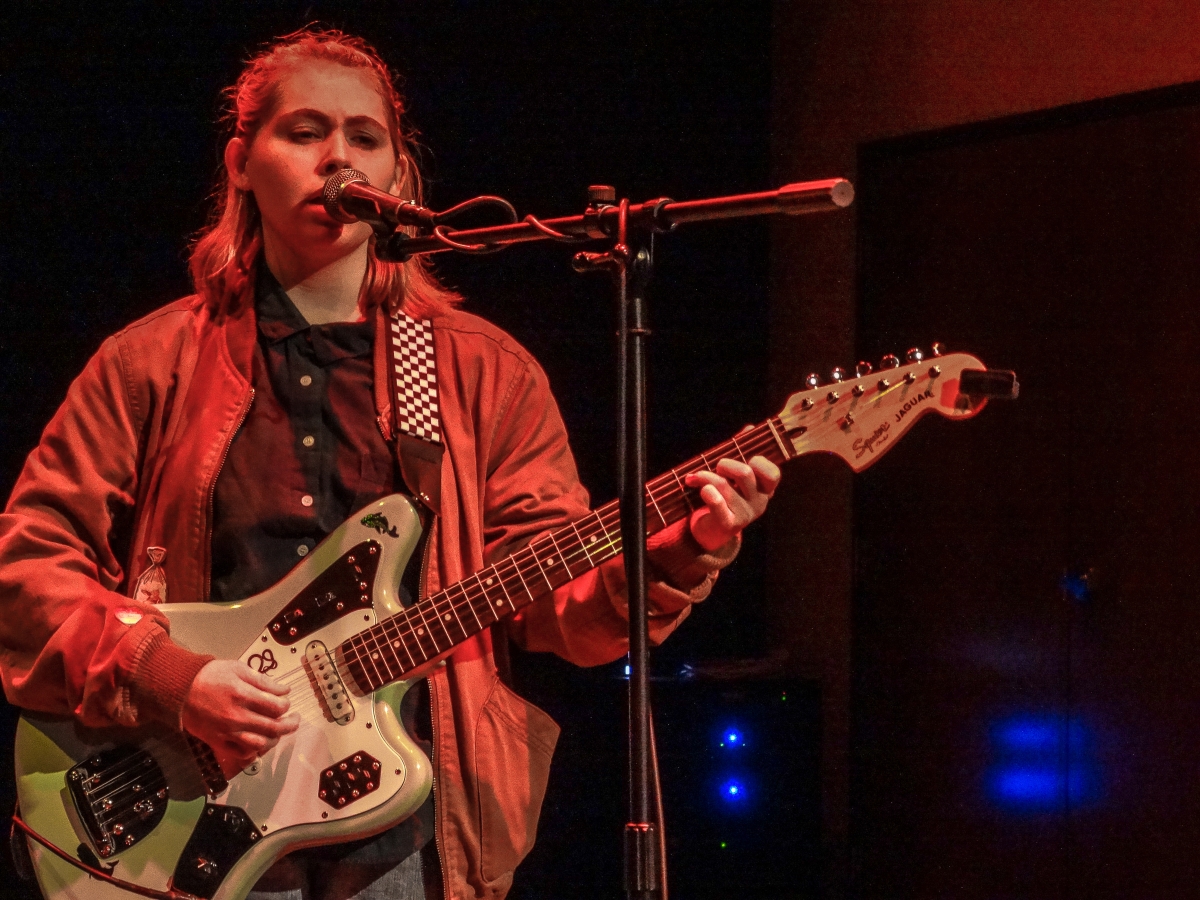
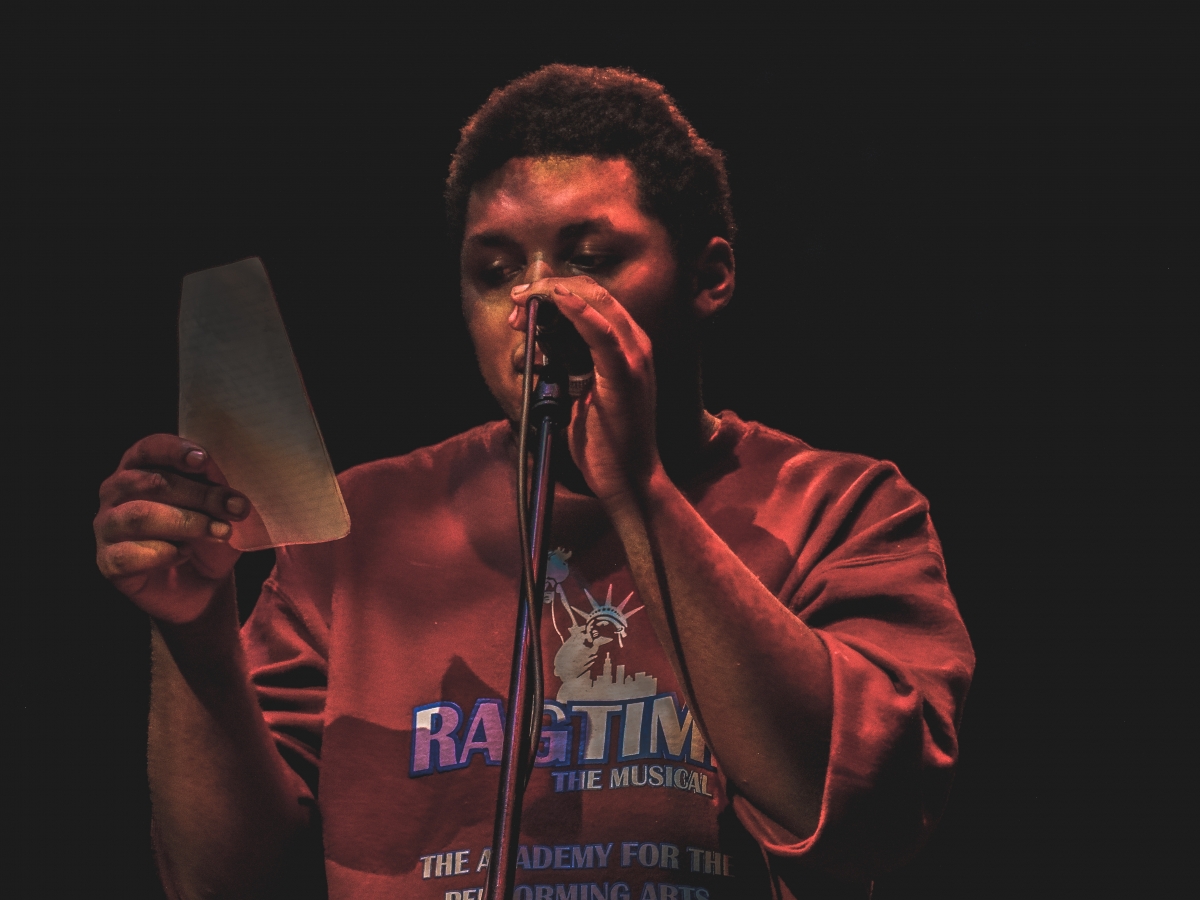
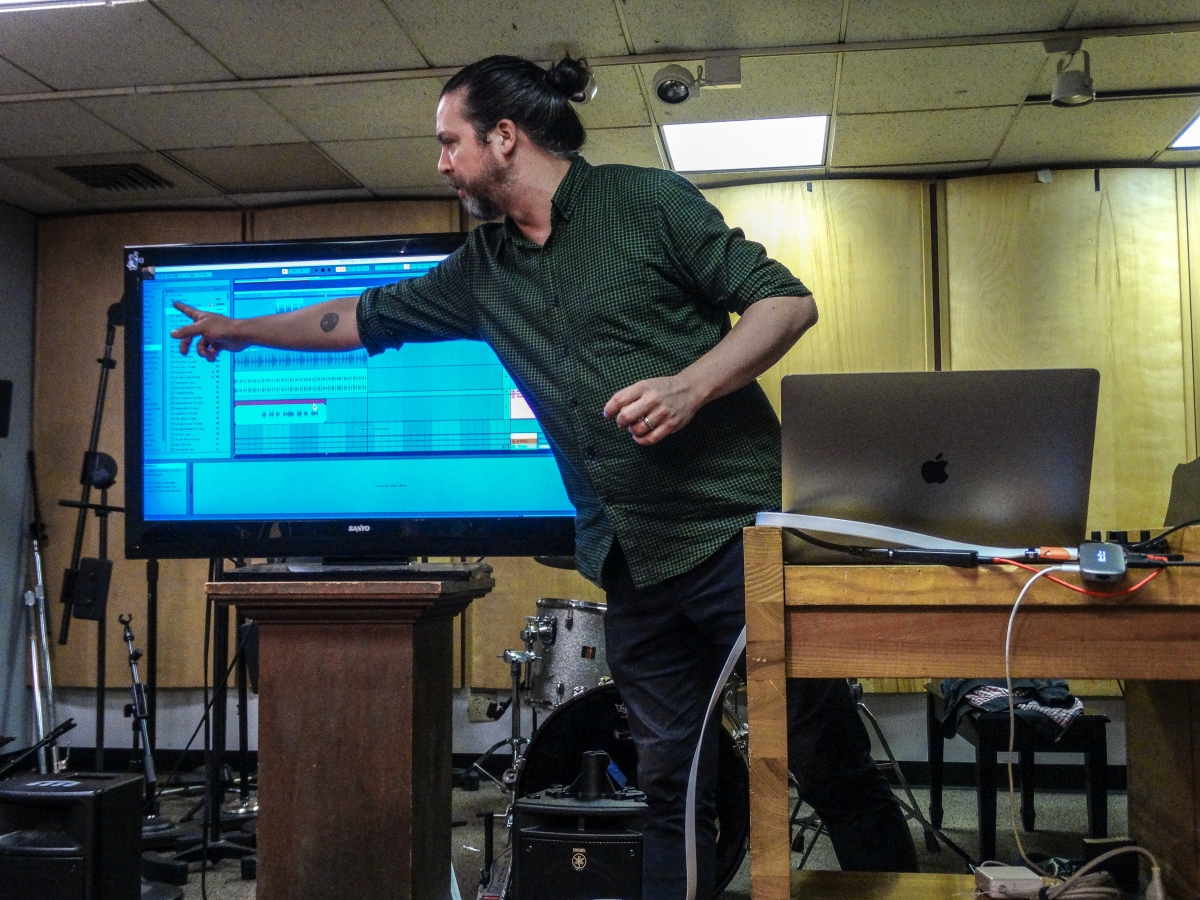
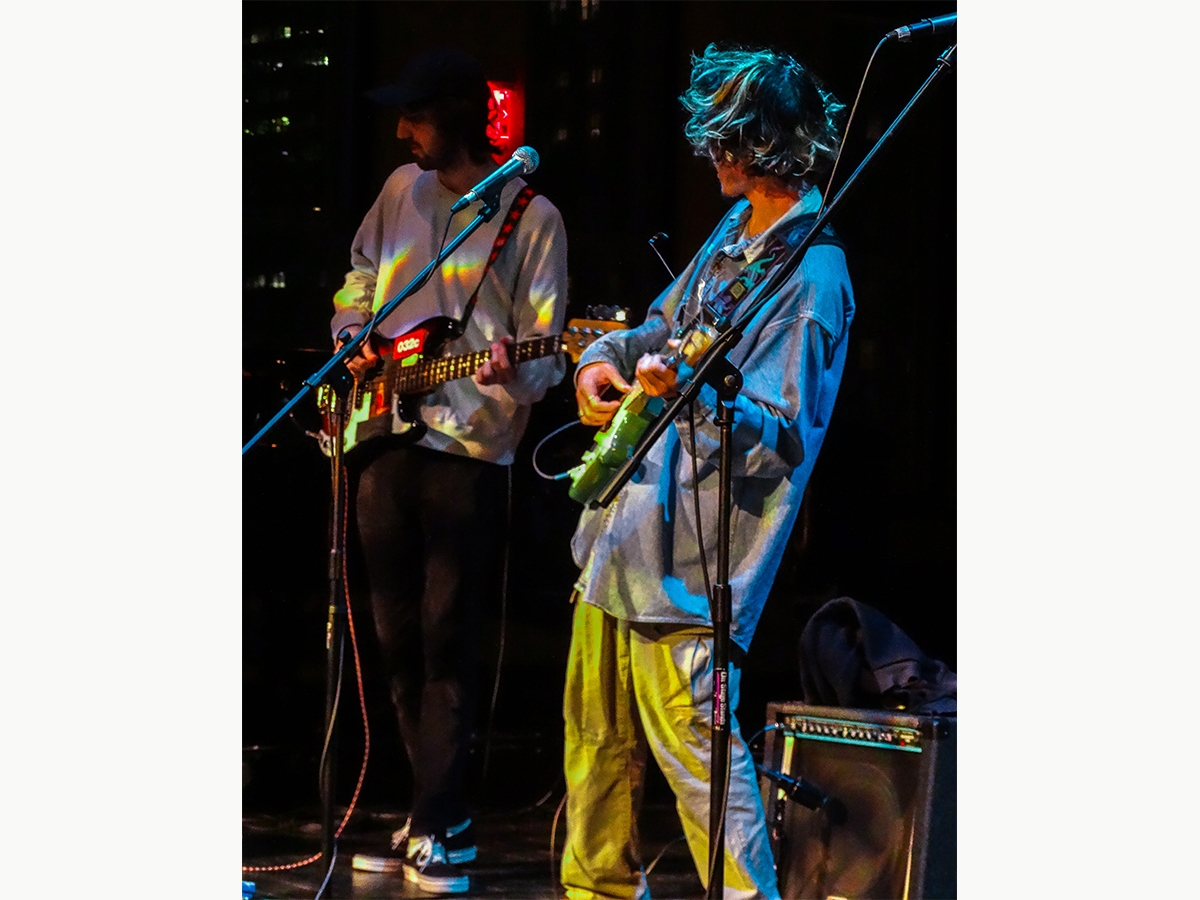
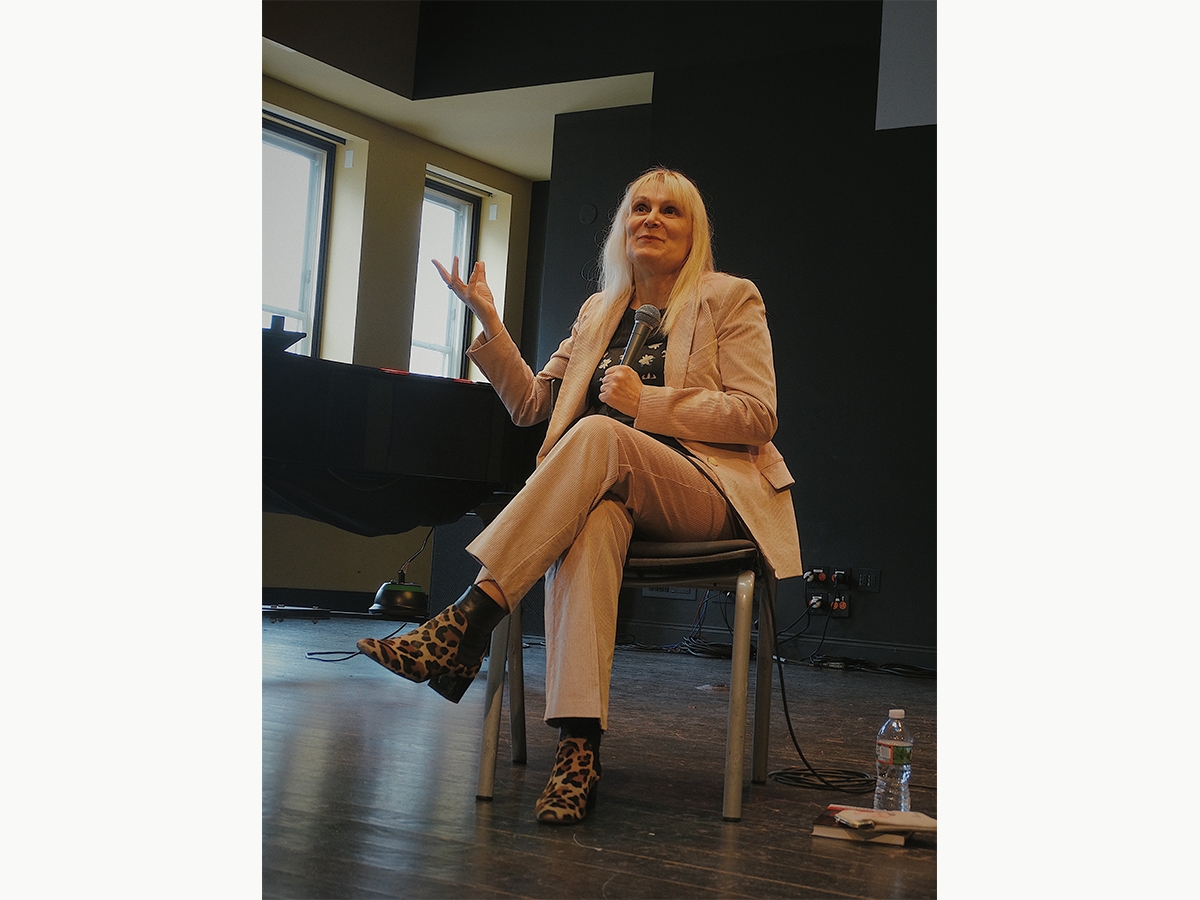
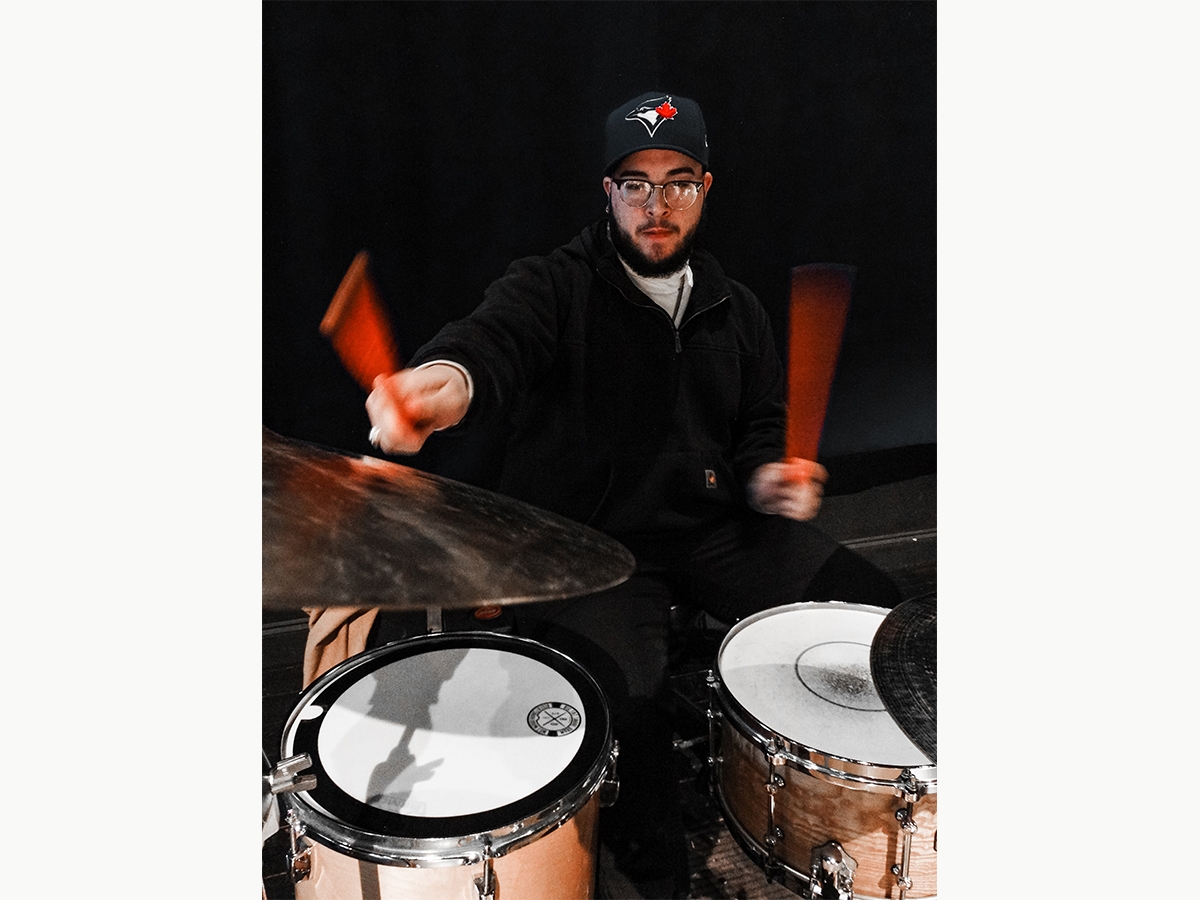
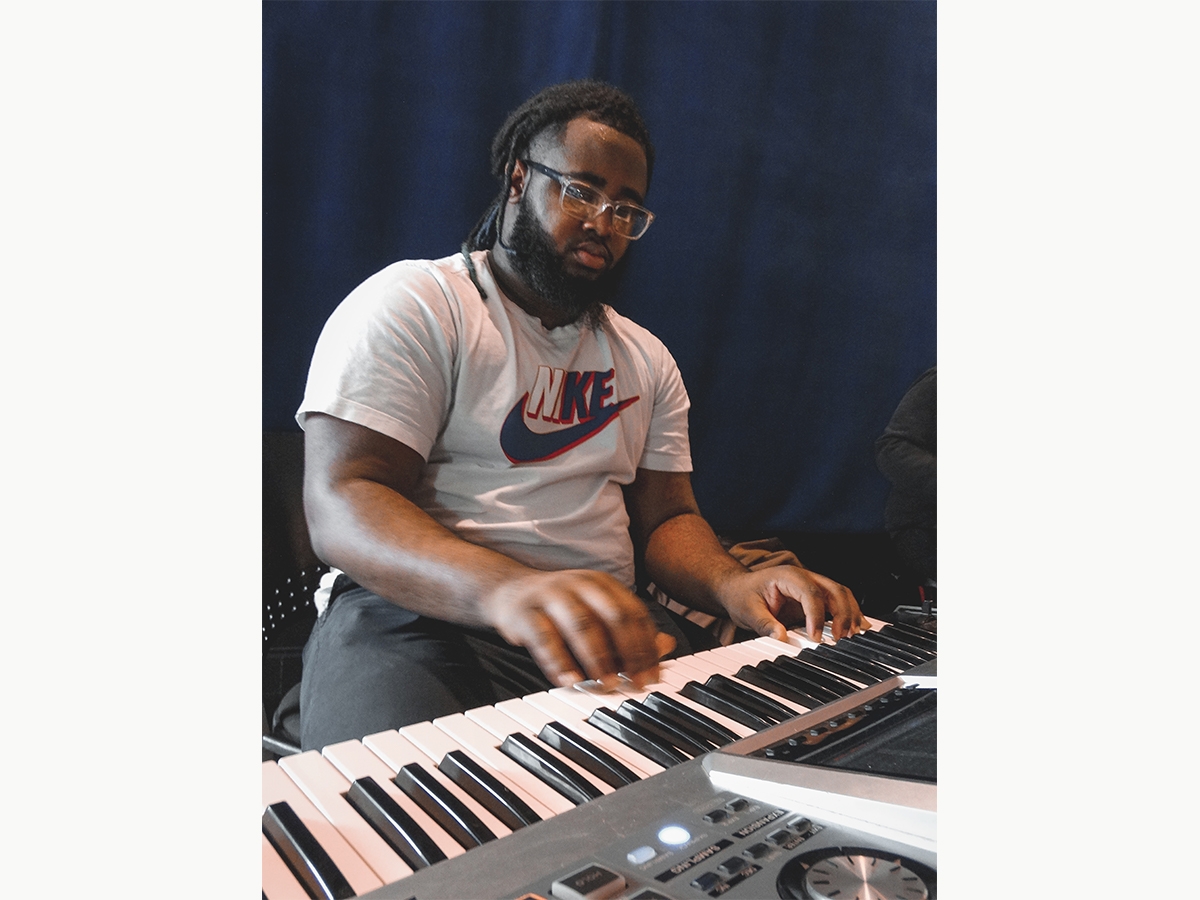
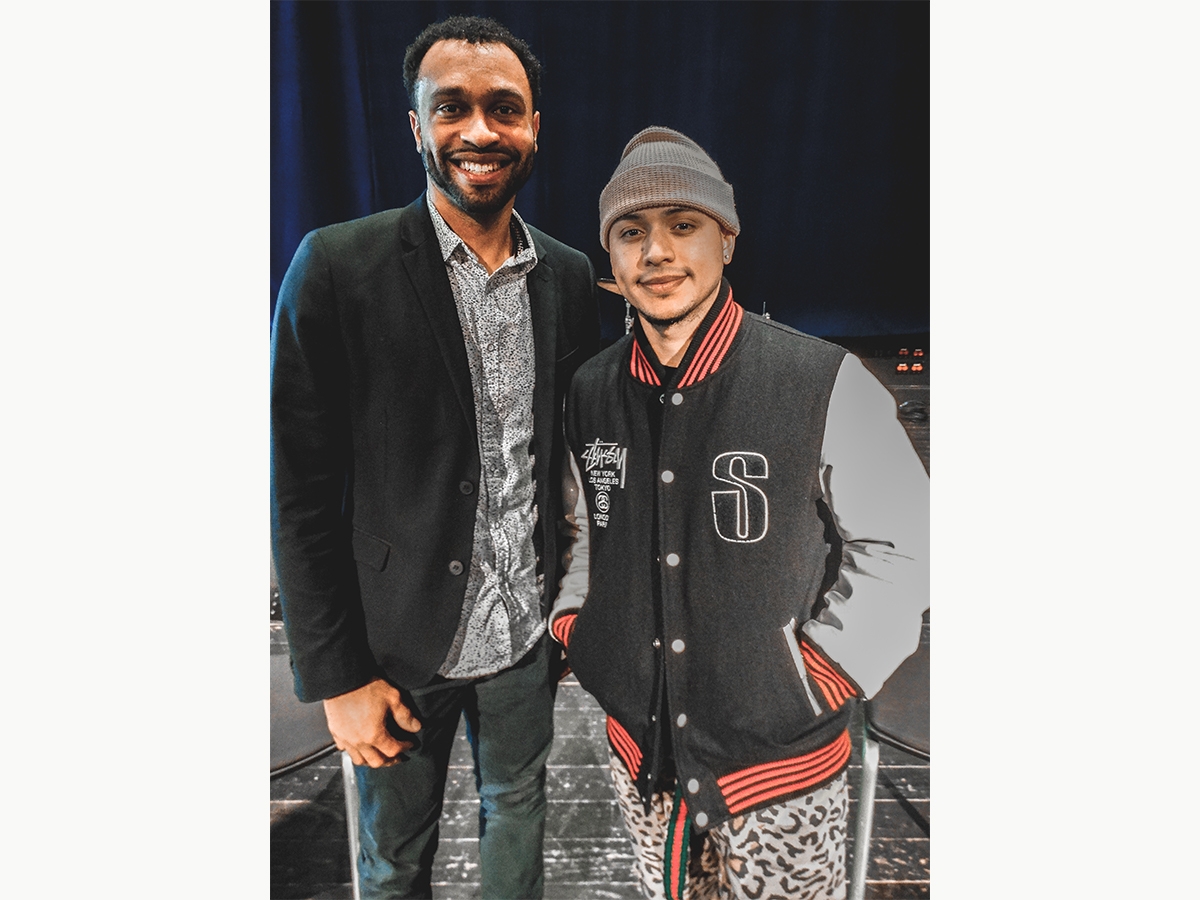
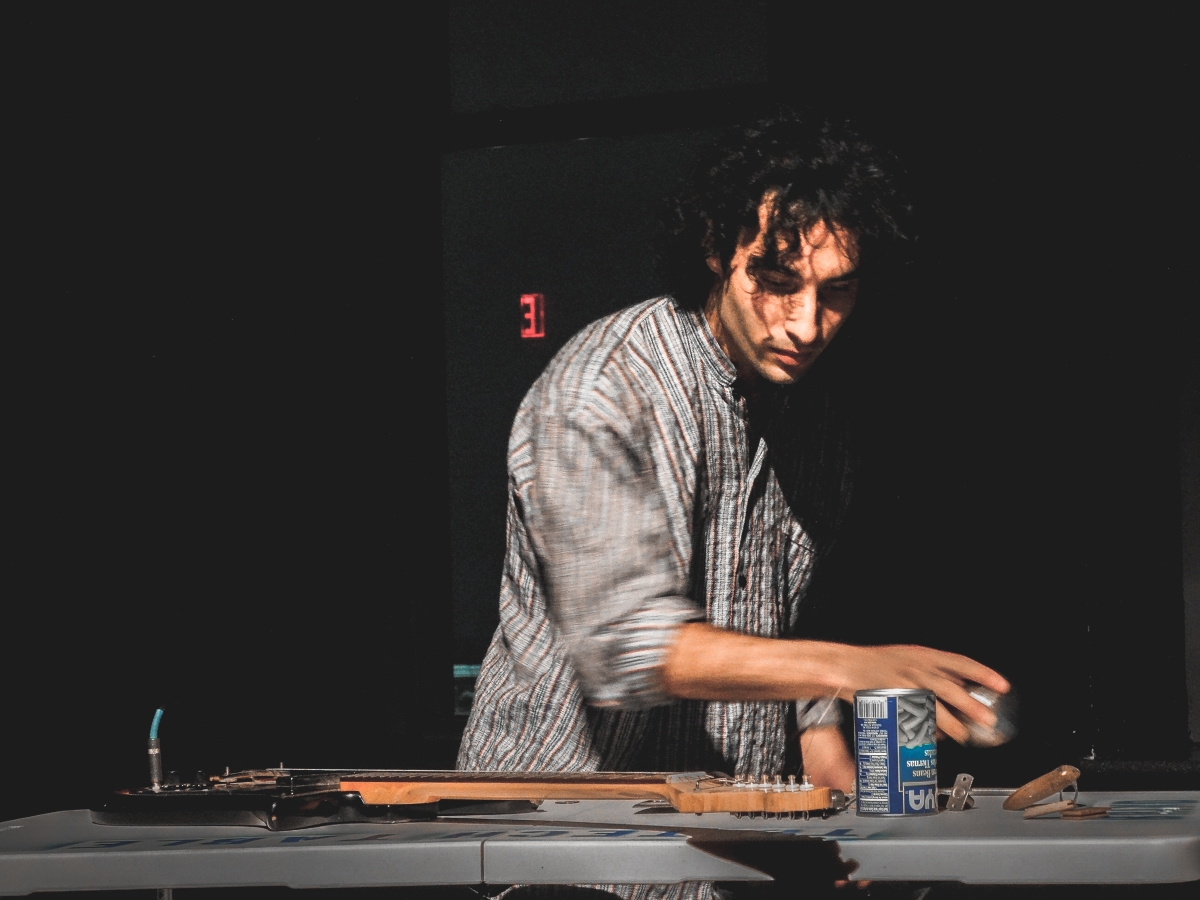
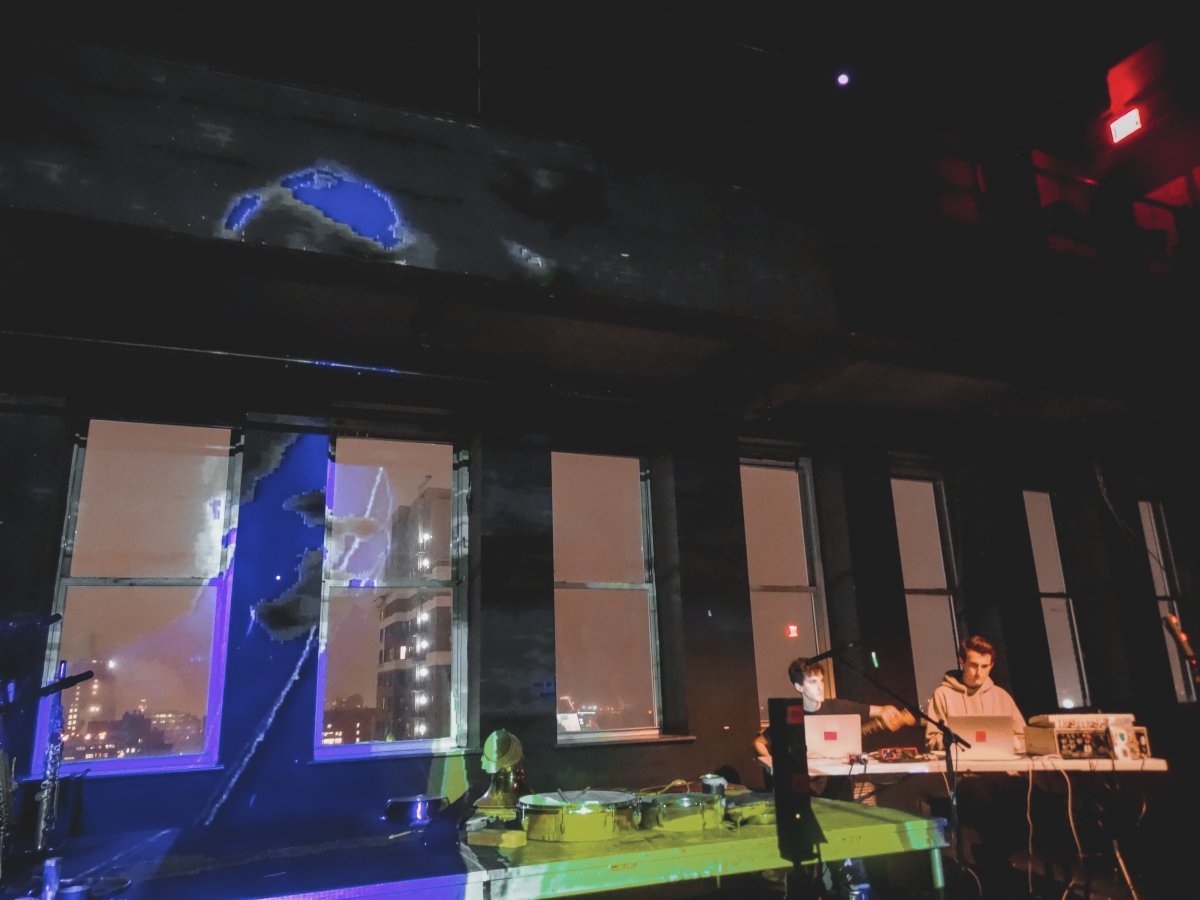
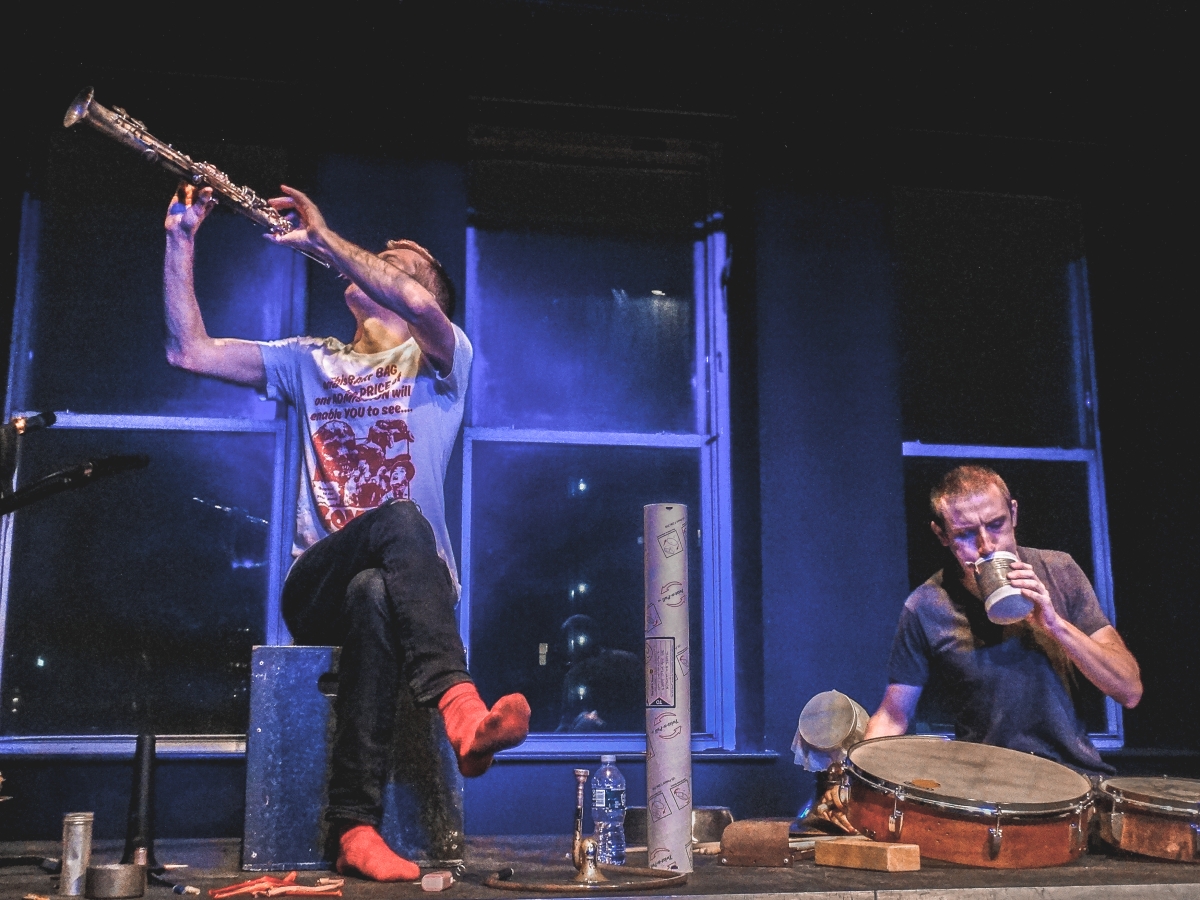
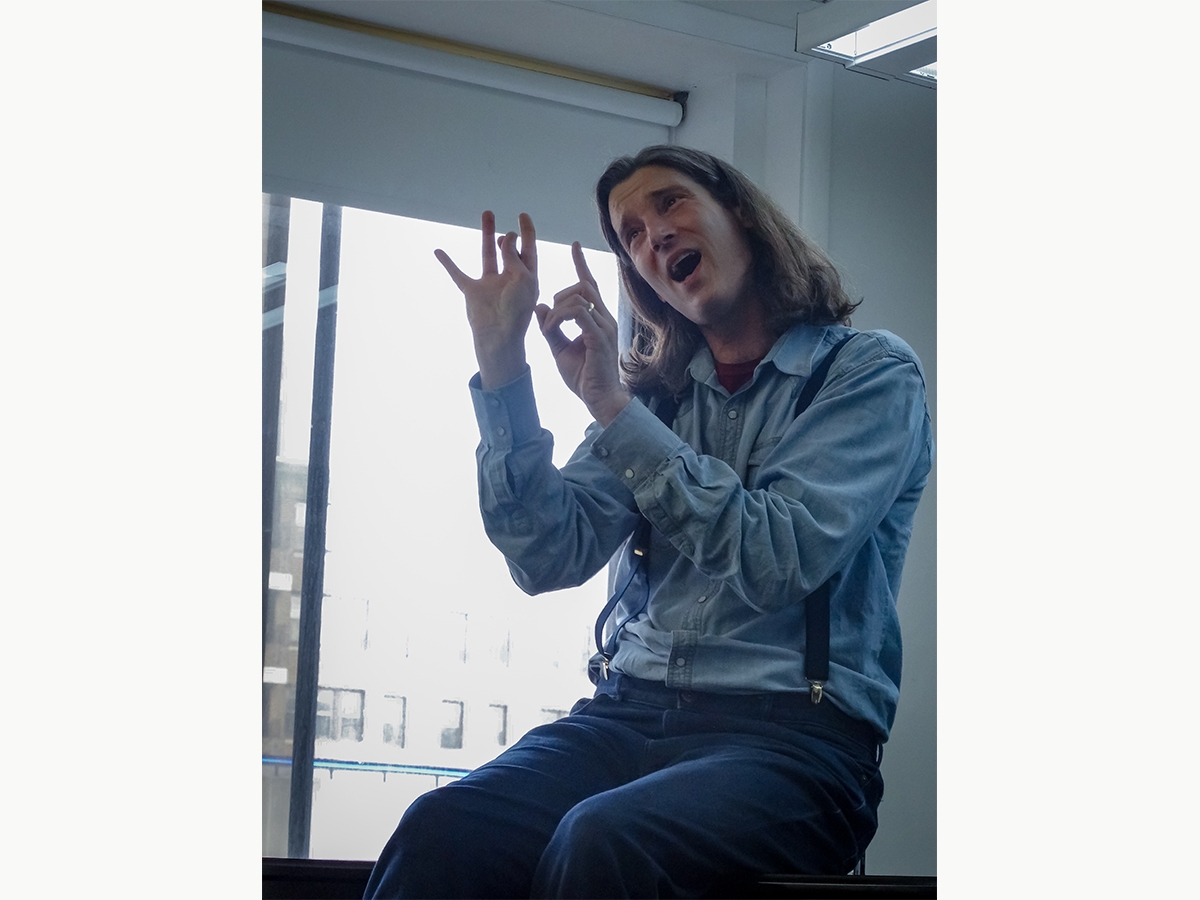
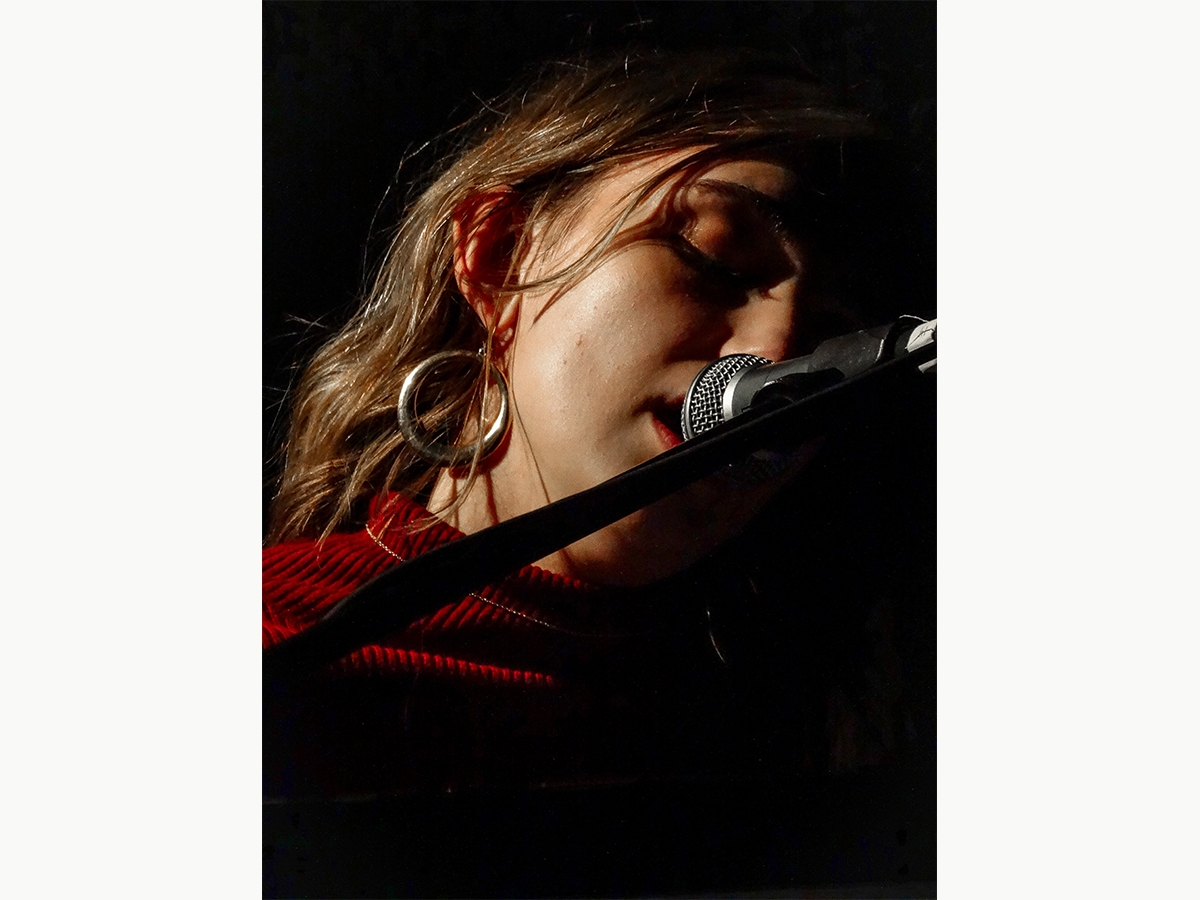
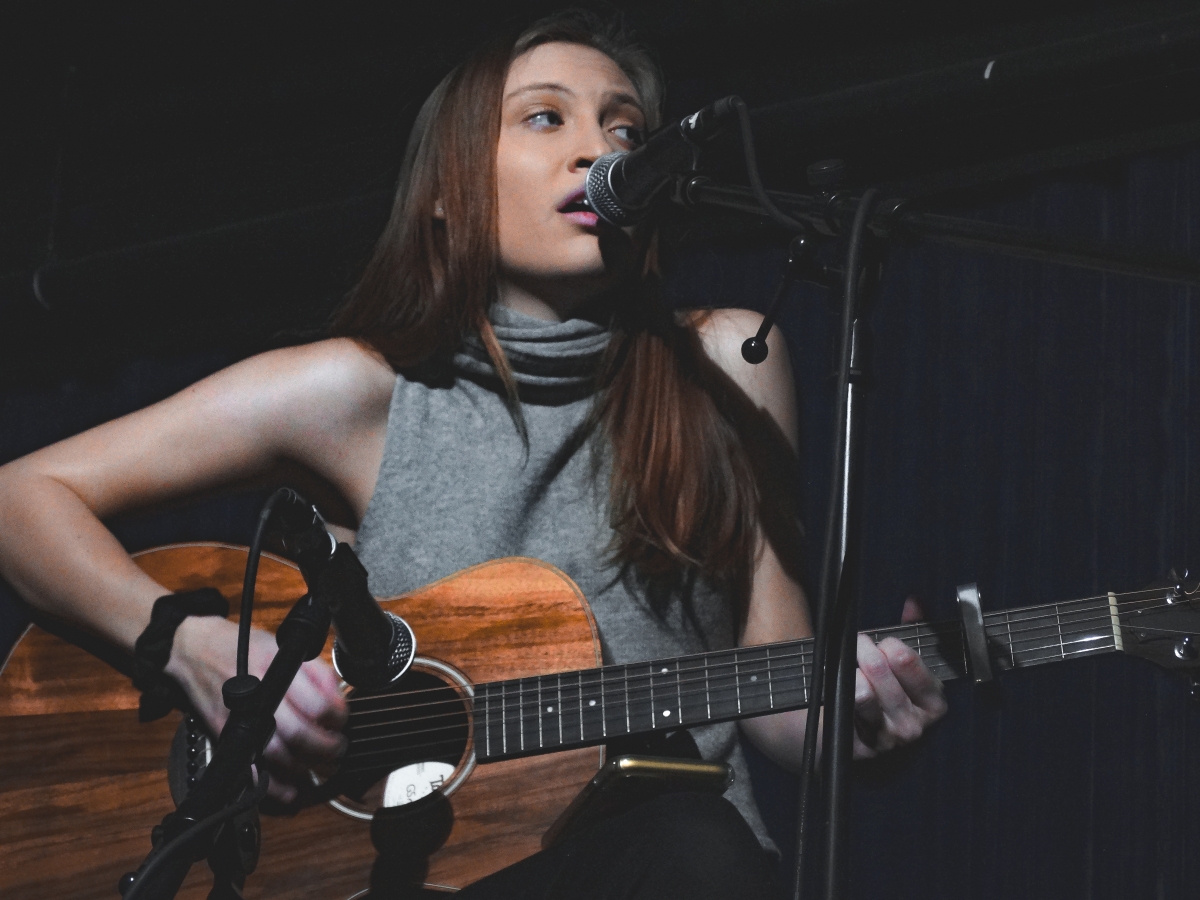
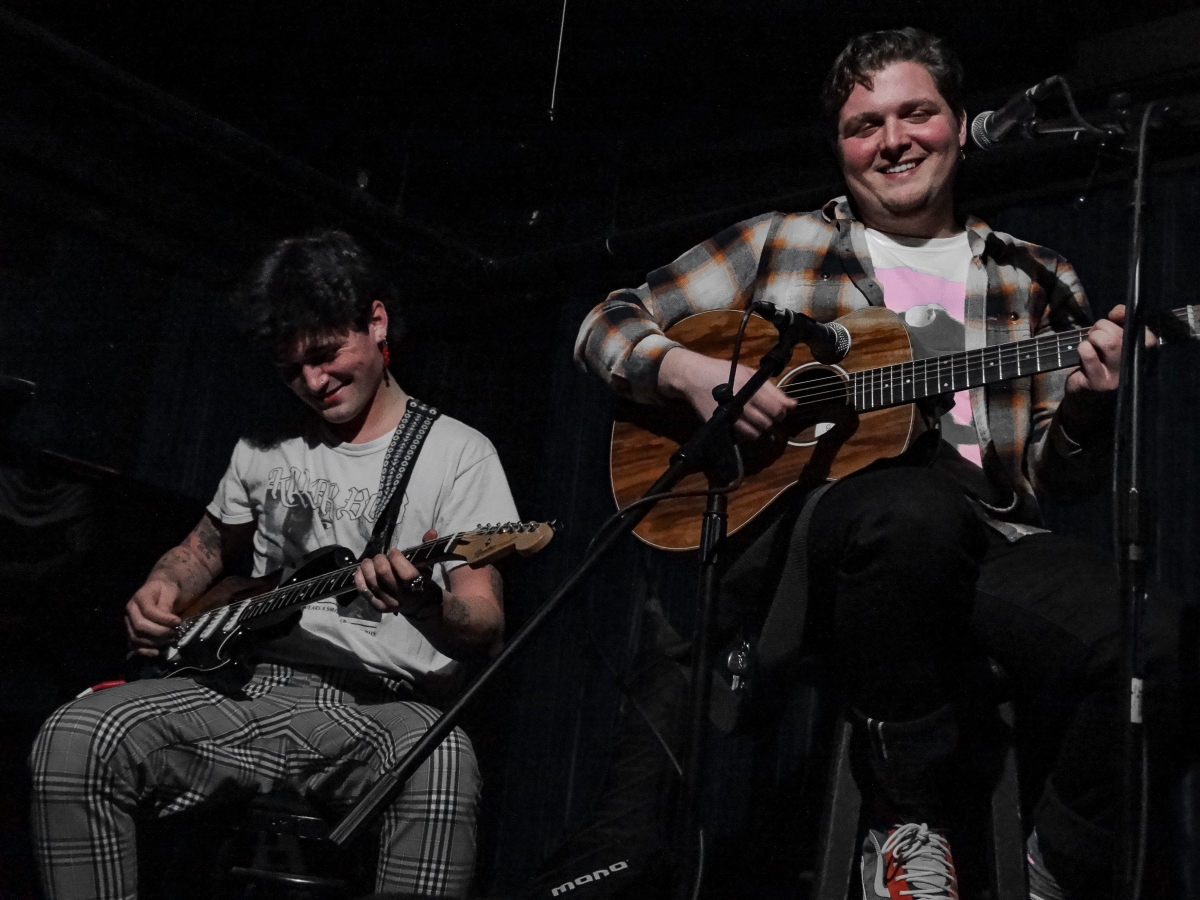
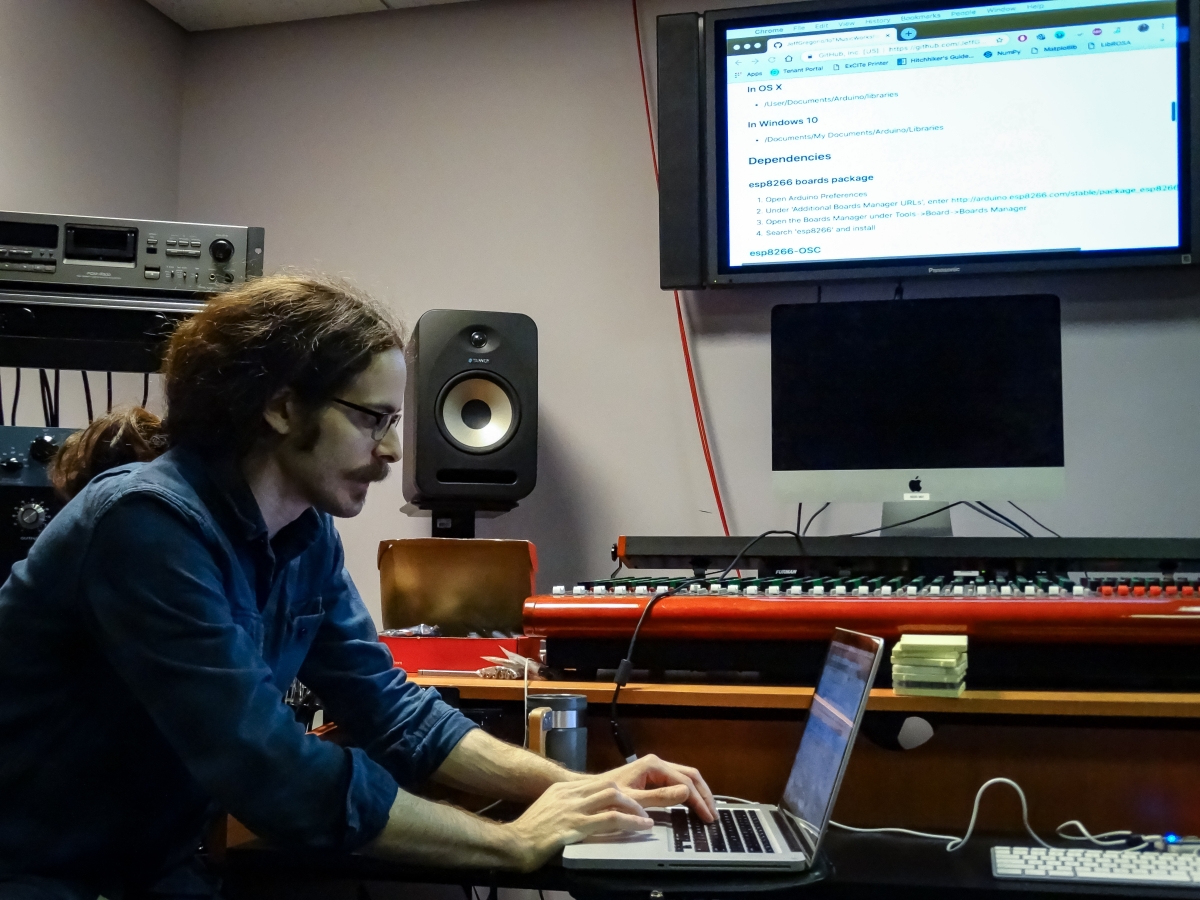

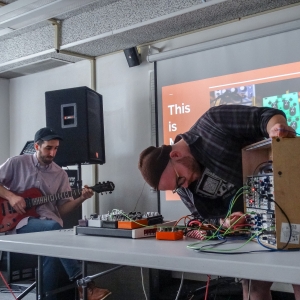
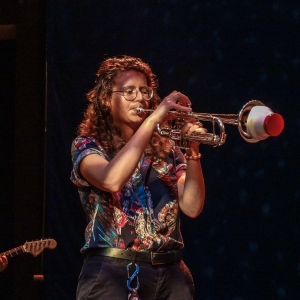
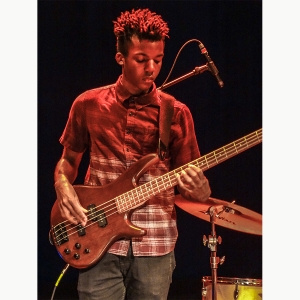
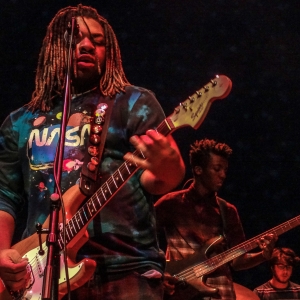
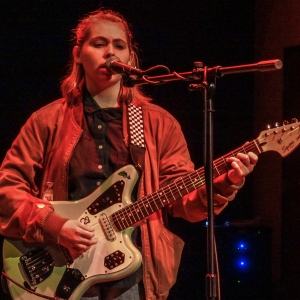
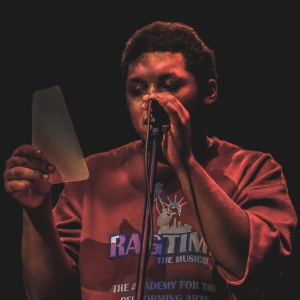
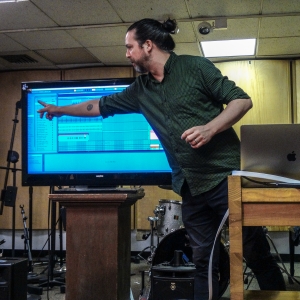
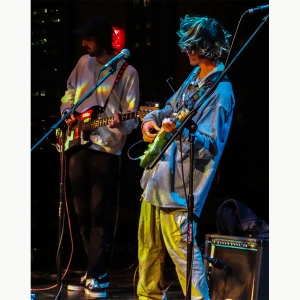
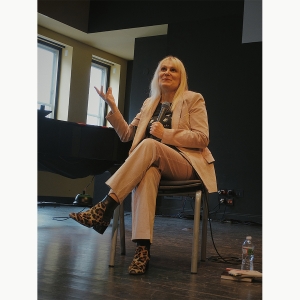
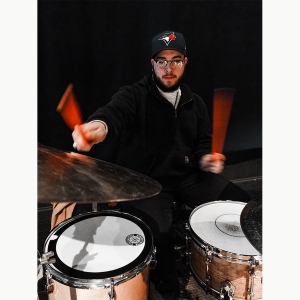
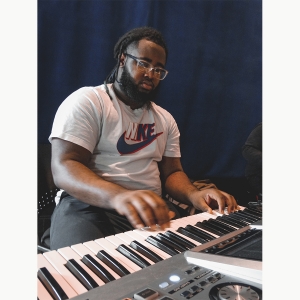
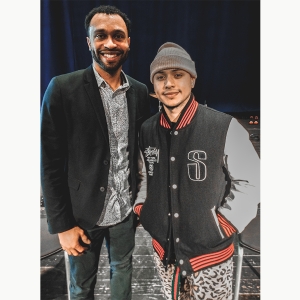
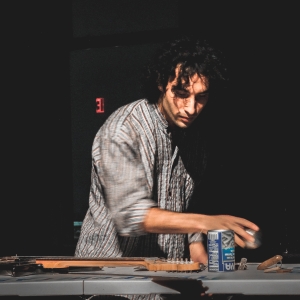
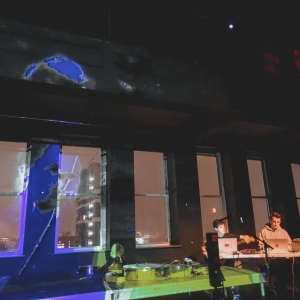
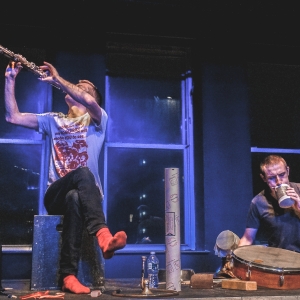
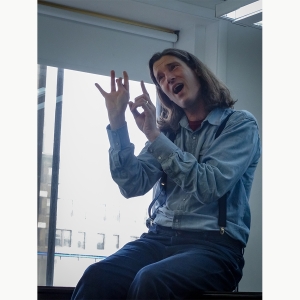
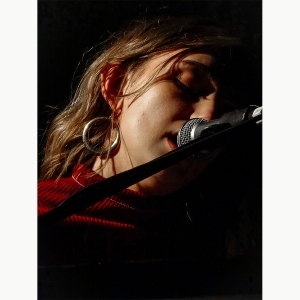
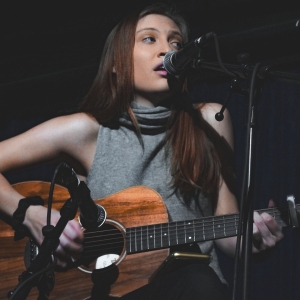
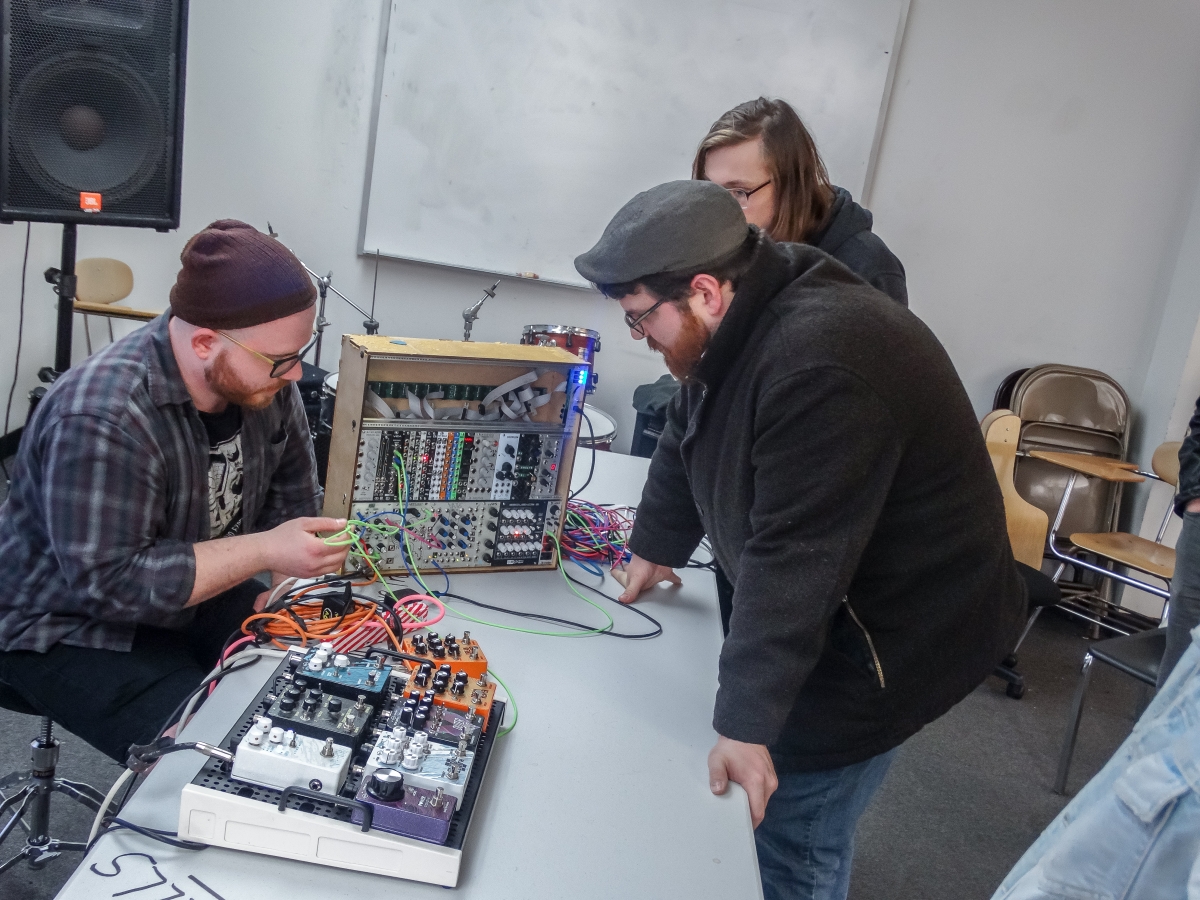
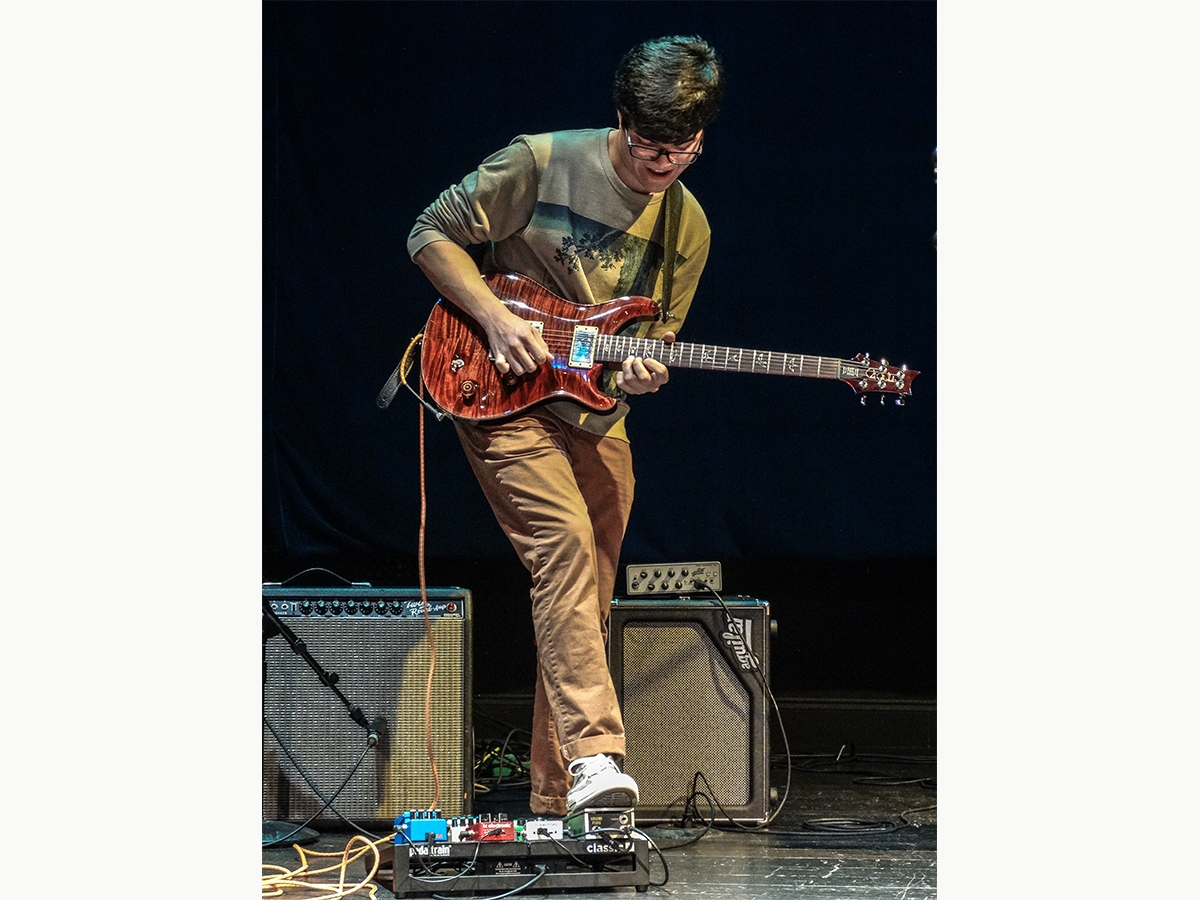
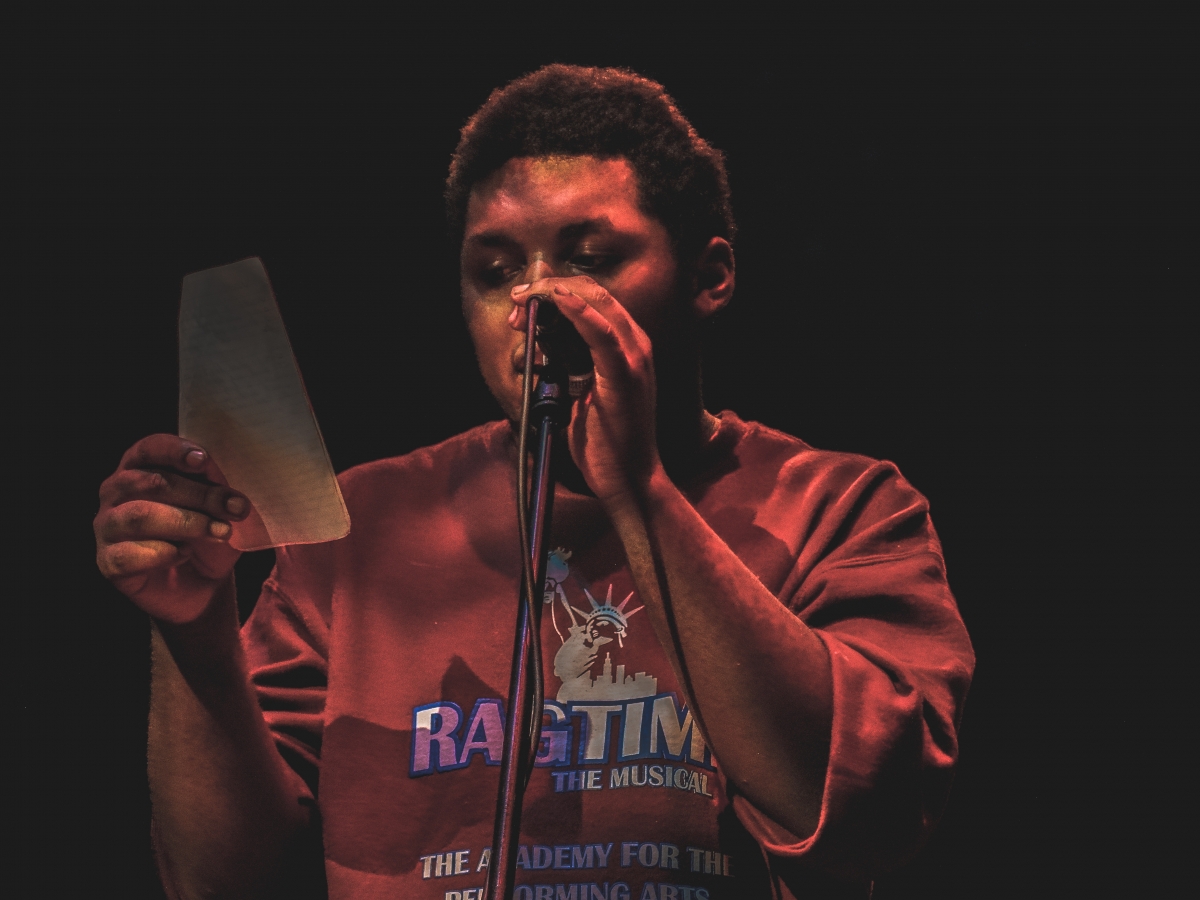
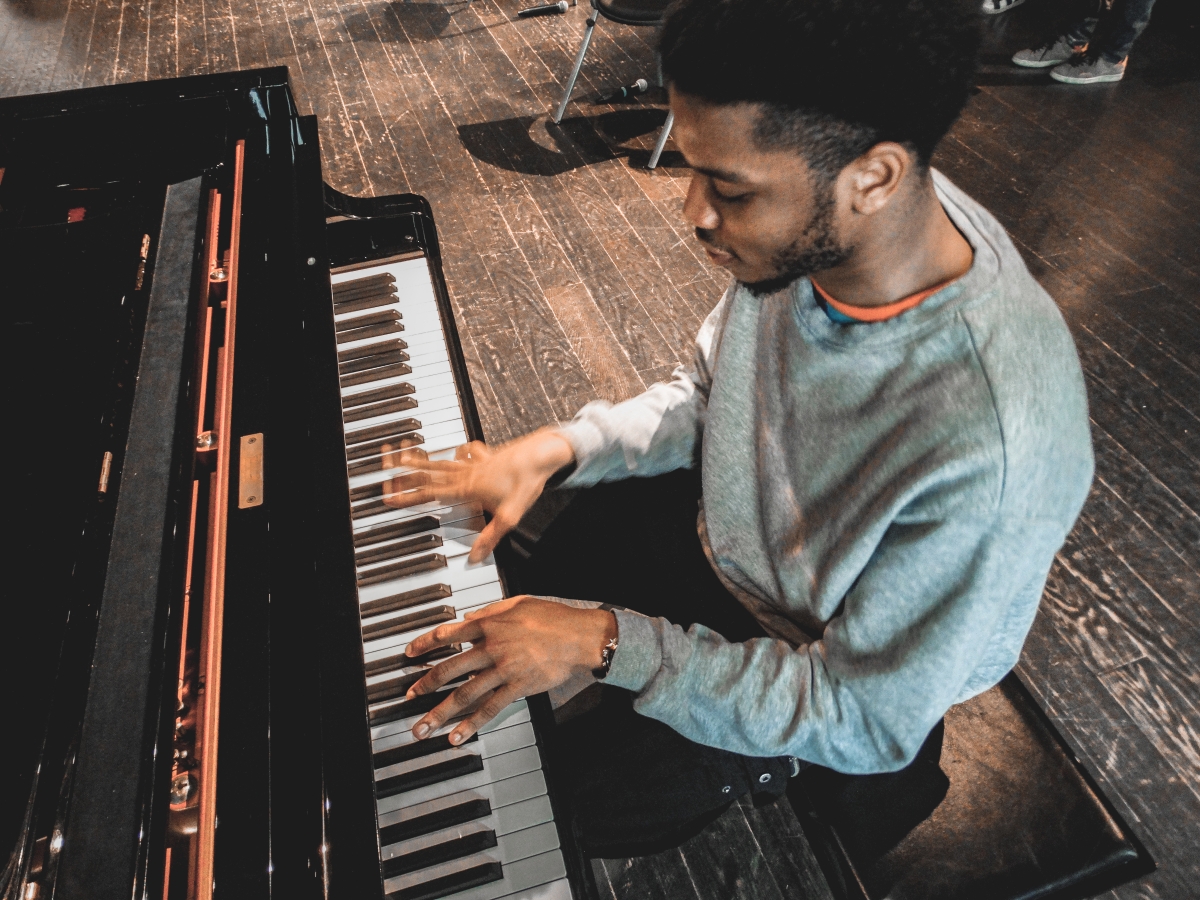
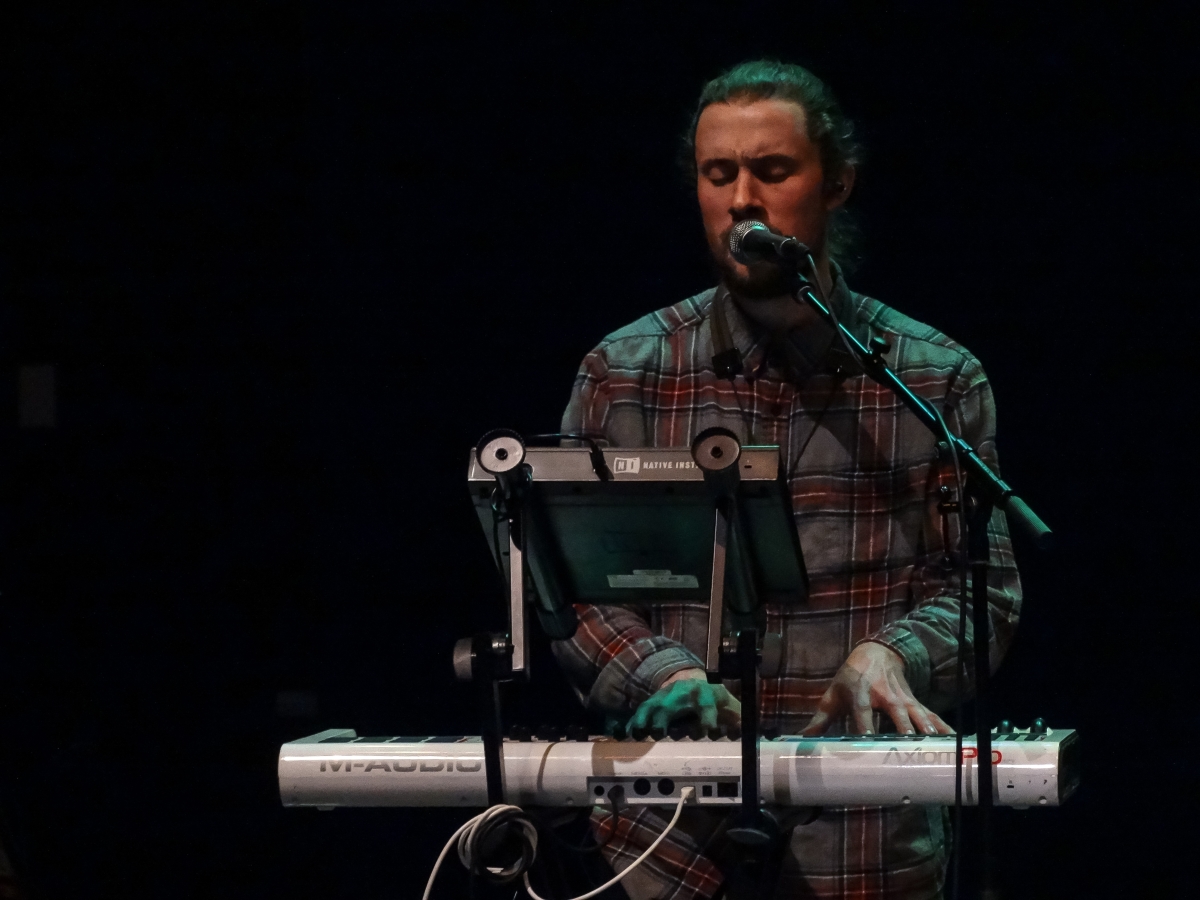
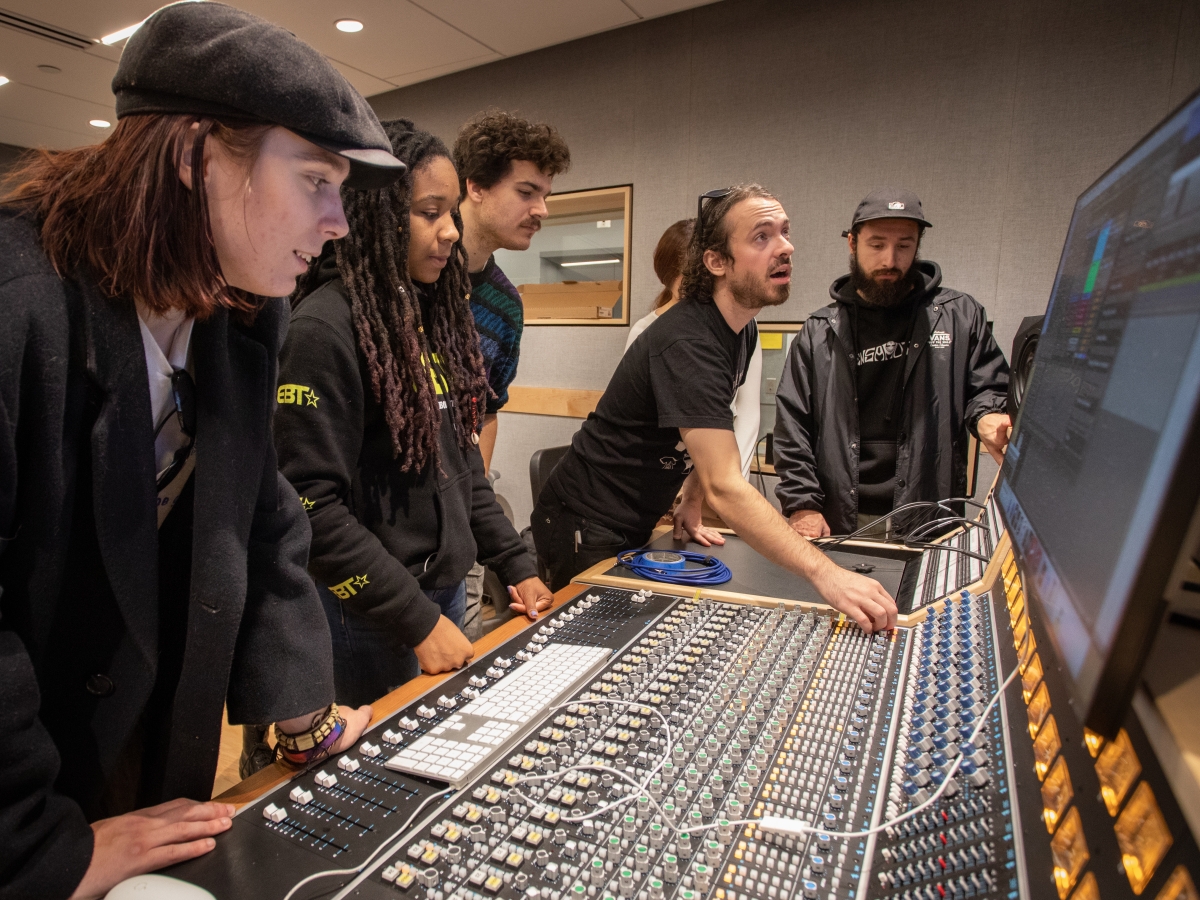
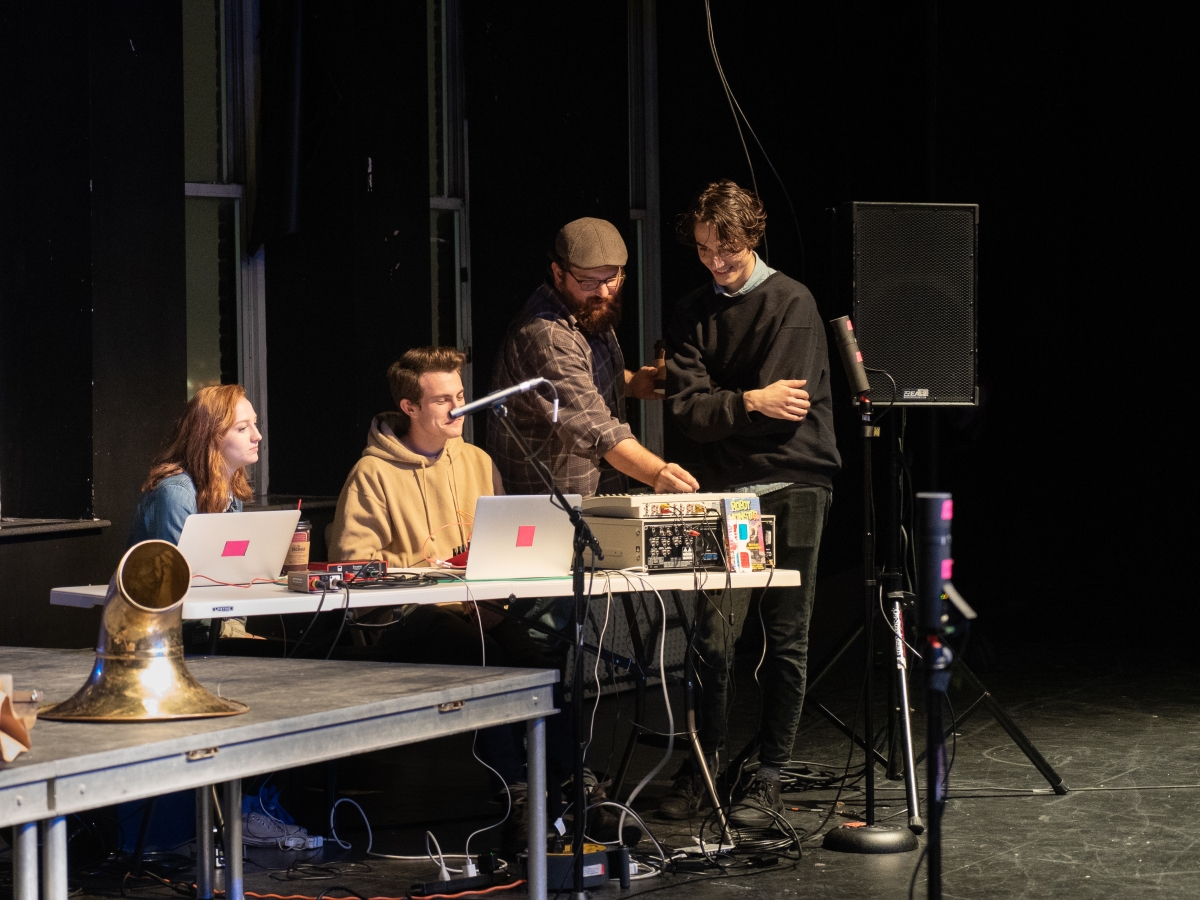
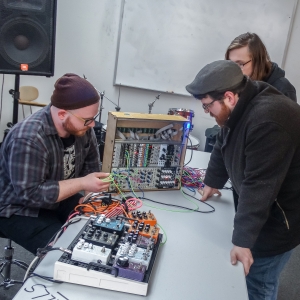
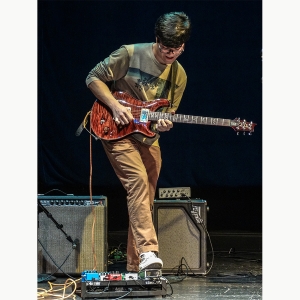
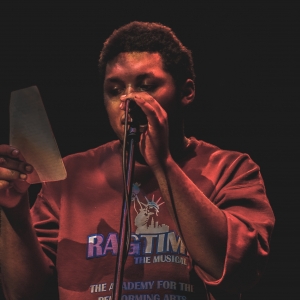
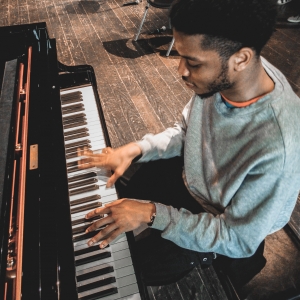
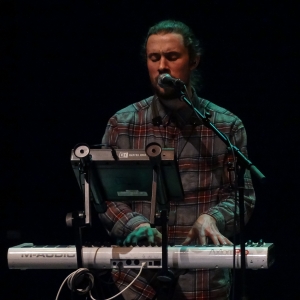
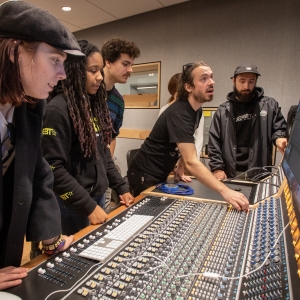
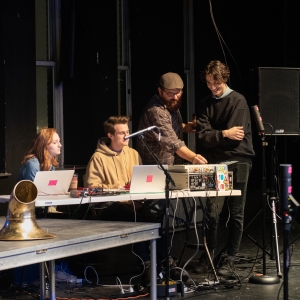

University of the Arts recently celebrated the grand opening of the Laurie Wagman Recording Studios on the 11th floor of Terra Hall. On Wednesday evening, Nov. 13, School of Music faculty, staff, students, university administrators and honored guests gathered to dedicate the space to its benefactor, Trustee Laurie Wagman. The opening of these state-of-the-art recording studios marks the culmination of the School of Music relocation and renovation project, which started in June 2018 and also features brand new rehearsal, classroom, office, lab and production spaces.
The dedication celebration included remarks from UArts President and CEO David Yager, School of Music Dean Micah Jones BM ’97 (Jazz Performance) MM ’99 (Jazz Studies) and Laurie Wagman. Remarks were followed by a ribbon-cutting and performance by UArts’ Transfusion ensemble, a highly dynamic group that programs an eclectic mix of sounds and primarily performs newly commissioned works by current students, alumni and faculty.
“The studios are a transformational gift to our School of Music and MBET program, which is experiencing incredible growth,” said Yager upon the announcement of the gift. “Laurie Wagman is deeply connected to the students and programs at UArts through her commitment of time and financial support and her personal relationships with students.”
Both recording studios are equipped with state-of-the-art, 24-channel API consoles and Antelope interfaces. There is a surround sound system in Studio A, while Studio B has a pair of Adam reference monitors. Both studios have a number of outboard compressors, equalizers and other effects processors. Studio A will also function as a fully analog space equipped with a 16-track tape machine.
“These are some of the best spaces I have ever seen in an urban university setting,” says Dean Jones. “Now, we have an environment where our students’ creativity can thrive. I cannot express how grateful we are for Laurie Wagman’s unwavering support of the school and where it is heading. Likewise, to our president, who has not only encouraged us to reimagine our campus, but has taken action to make those dreams a reality.”
Wagman’s generosity also helped create Laurie Wagman Presents, an MBET concert series managed and promoted by the program’s students, including Out of the Box, a series which promotes experimental, electronic and improvised music, mostly composed by MBET students and often featuring guest artists working at the fringes of their disciplines.
Wagman’s philanthropic focus is in the arts, education and social services, and she has been the recipient of numerous awards for her dedication to young people. She is the founder and president of American Theater Arts for Youth lnc. and American Family Theater. Under her four-decade leadership, the two organizations have presented professional, original musical productions to more than 32 million students throughout the U.S. In addition to University of the Arts, Wagman also serves on the boards of the Kimmel Center for the Performing Arts, the National Children’s Theater Alliance and the Philadelphia Chamber Music Society.
Learn more about about Uniquely UArts, the campaign for creative capital.
Faculty Spotlight
Our faculty members are active in their fields outside the classroom and utilize industry contacts to provide students with connections for networking and job opportunities.
Curriculum
The Music Business, Entrepreneurship and Technology (MBET) curriculum is cross-disciplinary, as there are myriad opportunities to collaborate with students in other degree programs across UArts. Courses cover the core areas of Business and Entrepreneurship, Technology and Application (audio engineering in studio and live environments, electronics design and audio app programming), Music Theory and Musicianship, Critical Studies, and free electives. Additional study in international business, project courses and internships help maximize students’ undergraduate portfolios.
Available as a major (58.5 credits) or a minor (15 credits), this music business program can be customized to meet your career goals. Other than the core requirements, you can choose from a variety of Business and Entrepreneurship and Technology and Application courses to explore your individual interests in different areas of the music industry. For example, if you’re interested in sound design, you can take courses in topics like audio synthesis and DAW techniques.
Students graduating from the MBET bachelor’s degree program will
-
possess essential business knowledge in the foundational areas of marketing; communications; and business, contract and entertainment law;
-
possess essential music business knowledge in intellectual property, music licensing, media markets, and event production and management;
-
possess technological skills in audio production, recording, live sound reinforcement, digital distribution and web/interface design;
-
possess foundational music knowledge and competencies, the understanding of music form and structure, and critical listening and assessment skills;
-
possess advanced writing and presentation skills;
-
have engaged in entrepreneurial activities relative to the production, marketing and distribution of music and other performance and art media;
-
collaborate and partner with other university students and departments, as well as professional organizations;
-
be information-literate, aware, resourceful and problem-solving critical thinkers; and
-
use all of the above as the basis for creative and innovative output.
At UArts, all incoming freshmen and transfer students are required to have laptops. Students with qualifying laptops are given access to install university-licensed software for free.
Learn about the recommended laptop specs for MBET students.
See the list of free university-licensed software.
Sample Curriculum
Duration: Four years, full time
Credits: 120 credits
Major requirements: 58.5 credits
Discipline history: 9 credits
Critical Studies: 33 credits
Free electives: 19.5 credits
Fall semester: 15.5 credits
Business Of Music (2c)
Music Explorations (3c)
Music Theory I (3c)
MBET Project Forum (1.5c)
Musicianship I (5c)
Composition Fundamentals 101 (3c)
Spring semester: 15 credits
Recording I (2c)
Intro to ProTools (1c)
Music Theory II (3c)
Digital Distribution (3c)
Composition Fundamentals 102 (3c)
Musicianship II (3c)
Fall semester: 15 credits
Live Sound 1 (2c)
Critical Approach to Arts and Culture (3c)
Discipline History (3c)
Intro to Advertising OR Digital Marketing (3c)
Intro to Acoustics (3c)
Intro to Ableton Live (1c)
Spring semester: 15 credits
Intro to Electronic Music/Tech (3c)
Science (your choice) (3c)
Intro To Business (3c)
Audio Electronics (3c)
Free elective (your choice) (3c)
Fall semester: 15 credits
Business Fundamentals for the Creative Economy (3c)
Business & Entrepreneurship course (your choice) *** (3c)
Tech Elective(your choice) ** (1.5c)
Critical Approaches to Arts (3c)
Discipline History (3c)
Intro to Audio Programming (1.5c)
Spring semester: 14.5 credits
Tech Elective (your choice) ** (1.5c)
Critical Approaches to Arts (3c)
Critical Studies (your choice) (3c)
Free Elective (your choice) (4c)
Discipline History (3c)
Fall semester: 15 credits
Tech Elective (your choice) † (3c)
Critical Studies (your choice) (3c)
Critical Studies (your choice) (3c)
Free elective (your choice) (3c)
Internship (3c)
Spring semester: 15 credits
MBET Senior Project (3c)
Business & Entrepreneurship course (your choice) †† (3c)
Critical Studies (your choice) (3c)
Critical Studies (your choice) (3c)
Free elective (your choice) (3c)
Explore the Full Curriculum
Facilities
The School of Music offers a robust set of performance spaces, recording studios, rehearsal rooms and music labs.
-
two state-of-the-art recording studios
-
seven production suites
-
eight rehearsal rooms
-
16 individual practice rooms
-
two dedicated drum practice rooms
-
four smart classrooms that double as rehearsal spaces
-
one circuitry lab
-
one electronic music lab featuring the 4th Moog analog synthesizer, built specifically for the School of Music at UArts in 1965
-
two computer labs with keyboard controllers and audio interfaces
-
two drum teaching and practice studios
Laurie Wagman Recording Studios
In 2019, UArts celebrated the grand opening of the Laurie Wagman Music Studios on the 11th floor of Terra Hall. The two recording studios are equipped with state-of-the-art, 24-channel API consoles and Antelope interfaces. There is a surround sound system in Studio A, while Studio B has a pair of Adam reference monitors. Both studios have a number of outboard compressors, equalizers and other effects processors. Studio A will also function as a fully analog space, equipped with a 16-track tape machine.
Studio A
-
16-track, 1-inch tape machine
-
Antelope Orion 32+ converters
-
API 2448 console
-
Genelec 5.1 surround sound system
-
a variety of outboard gear, including
-
1176-style compressors
-
EL8 distressors
-
Eventide Eclipse
-
Pultec-style EQ
Studio B
-
Adam A77X nearfield monitors
-
Antelope Orion 32+ converters
-
API 2448 console
-
a variety of outboard gear, including
-
1176-style compressors
-
EL8 distressors
-
Eventide Eclipse
-
Pultec-style EQ
























Two recording studios are equipped with state-of-the-art, 24-channel API consoles and Antelope interfaces. There is a surround sound system in Studio A, while Studio B has a pair of Adam reference monitors. Both studios have a number of outboard compressors, equalizers and other effects processors. Studio A will also function as a fully analog space equipped with a 16-track tape machine.
Circuitry Lab
The circuitry lab at UArts is designed as both a classroom and a space for students to experiment with and build audio electronic equipment. State-of-the-art ventilation and 12 individual stations ensure a professional workspace and is open for use during and outside class hours.
-
central island with a lab sink, storage and overhead HD camera which feeds into two large HD smart monitors
-
a Tektronix 2235 Analog Oscilloscope
-
two Craftsman Drill Presses each with their own industrial work countertop and assortment of drill bits
-
various hand and maker tools, such as hot-glue guns, nibblers, reamers, rotary tools, screwdrivers and more
-
an ever-growing stock of various electronic components such as capacitors, ICs, knobs, resistors, semiconductors and more
-
12 student lab stations, each with a
-
variable benchtop power supply
-
Weller soldering iron station
-
bench vise
-
breadboard
-
small tool kit consisting of wire cutters, pliers, soldering supplies and testing equipment
-
digital multimeter
-
Performance Spaces
-
Arts Bank features a 230-seat main stage, rehearsal and dance studio, and the Laurie Beechman Cabaret Theater on the first floor.
-
The Ellen and Ronald Caplan Center for the Performing Arts includes the Caplan Recital Hall and the black box Caplan Studio Theater.
-
CBS Auditorium is used primarily for meetings, lectures, and workshops and symposia.
-
The Elaine C. Levitt Auditorium is located in historic Gershman Hall and hosts large concerts and performances.
-
The Gershman Black Box Theater hosts student-led productions.
Learn more about performance spaces at UArts.
Center for Immersive Media
The Center for Immersive Media (CIM) is a 5,600-square-foot facility dedicated to exploring the fields of virtual and mixed reality, performance motion-capture, and human-computer interaction. The space includes
-
an optical motion-capture system for full-body performance capture and location-based VR applications;
-
a four-channel audio system, multiple video projectors and lighting, and a control station;
-
16 Genelec speakers for a 3rd Order Ambisonic system;
-
a 16-station computing classroom with PCs optimized for real-time graphics rendering; and
-
two large project rooms with ceiling grids for the development of installations and virtual environments.
Profiles & Careers
Internships
You’ll gain professional experience and a behind-the-scenes view of the music industry during internship. Throughout your course of study, you are required to complete a three-credit, 90-hour internship. Though students are responsible for finding their own internships, faculty often use industry contacts to connect students with opportunities in the field.
Internships that have previously hosted UArts students include
AEG • Billy Penn Music • Breed Studios • CBS Radio • Charterhouse Music Group • CID Entertainment • CODA Nightclub, Critter and Guitari • EDM World Magazine • ESPN Radio • EVERYBODY Brands • Fame House/UMG • Firefly Festival • Grammy U • Hazelrigg Industries • Kiros Beauty • Live Nation • Miner Street Studios • MVP Interactive • Organic Music Marketing • Ormsby Guitars • Owl's Nest Media • Philadelphia Folk Festival • Philadelphia Recording Academy • Punch Line Philly • REC Philly • Rumor Nightclub • Sigma Studios • Sine Studios • Spice House Sound • Superior Sound Studios • Terrorbird Media • The Boom Room • The Brooklyn Home of Music • Electric Factory • the Fillmore • the Headroom • the Kimmel Center • the Mann Center • the Philadelphia Clef Club of Jazz and Performing Arts • the Trocadero, Turtle Studios • Undercarriage Studios • Underground Arts • Uniform Recording • Union Transfer • Universal Records • Walt Disney World • Warner Music Group • Watt Studio • Weathervane Music Organization • William Street Common • World Café Live • WXPN
As the industry continues to grow, graduates find themselves in a variety of roles. Common career fields for MBET majors include those in
-
Amplifier design and construction
-
Artist management
-
Audio processor design and construction (guitar pedals, outboard gear)
-
Booking
-
Digital audio production
-
Entertainment law
-
Film
-
Live music events
-
Music entrepreneur
-
Music journalism
-
Recording engineering for music and visual media
-
Studio design and acoustics
-
TV
-
Venue management
-
Video games
Featured Alumni
Student Spotlight
Our students experiment, push boundaries and envision new models for the future of the industry. Their interests are diverse and span from recording original music to marketing, and incorporate other disciplines of art such as photography.
Featured Students
How to Apply
UArts offers recommended priority deadlines; students who apply and submit all required materials by the priority deadline will receive first consideration for scholarship aid from UArts. Applications received after the priority deadline will be reviewed on a rolling, space-available basis.
International students requiring an F-1 visa for study in the U.S. might be subject to earlier deadlines to provide time for completion of the visa process. Contact Admissions for guidance if you are an international student who wishes to apply after the priority deadline.
Spring 2024 priority deadline: Oct. 15, 2023
Fall 2024 priority deadline: Feb. 15, 2024
We cannot accept spring 2024 applications after Jan. 8, 2024, and cannot accept fall 2024 applications after Aug. 16, 2024.
We encourage students to complete the FAFSA by March 15, if possible.
Many students and families have encountered technical challenges while trying to complete the FAFSA this year. If this is the case for you, continue to utilize the FAFSA support resources until your issue is resolved. UArts will ensure that all admitted students who file the FAFSA are eligible for the same institutional funding to support your costs.
The following materials are required for your application.
Start or resume your application.
-
The application includes two required short-answer questions: What excites you about UArts? What inspires you?
-
If you qualify for a fee waiver from NACAC, CollegeBoard, UArts or another source, indicate that on your application. If the cost of the application fee is a barrier, contact Admissions to request a fee waiver code.
-
Official transcripts must be sent directly from your school by mail, email or a secure electronic document-delivery service.
-
International transcript requirements
-
If you’ve attended high school outside the U.S., read the additional guidelines for international transcripts.
-
-
Transfer student transcript requirements
-
High school transcripts may be waived for transfer applicants who have completed a minimum of 24 credits of college-level coursework, including a minimum of 18 academic, non-studio credits.
-
Official college transcript(s)
-
Official transcripts must be sent directly from all the colleges you have attended by mail, email or a secure electronic document-delivery service.
-
If you’ve attended college outside the U.S., you are required to have an official course-by-course evaluation of your college coursework sent to UArts. Additional guidelines for international transcripts are available.
-
-
Auditions or interviews are required for all Dance, Music and Theater programs. After submitting your application, go to your applicant status portal to register for your virtual or on-campus audition day. View a full list of audition requirements by program.
-
Letters of recommendation from teachers or mentors are optional and may be submitted by the recommender via email to undergradcredentials@uarts.edu or by your high school through a secure electronic document-delivery service.
Apply now
About the School of Music
The School of Music at University of the Arts is dedicated to the preparation and training of musicians for careers in music performance, production, recording, all aspects of the music business, composition and music education. Your growth as a musician is the primary goal of the program. In 2020, the School of Music was ranked #2 in The 10 Best “Hidden Gem” Music Schools by Music School Central.
The school trains you to be a professional of the highest caliber through a comprehensive curriculum that includes private lessons with an actively performing faculty, an abundance and diversity of ensembles and performance experiences, and a focus on information literacy and critical thinking.
Performance opportunities sharpen your technical and improvisation skills and increase your knowledge of repertoire and styles. The school’s numerous performance ensembles represent a wide range of styles and categories of classical, hip-hop, jazz, R&B and world music. You’ll be involved in a rigorous schedule of performances: UArts produces over 150 concerts and recitals each year.
Get Started
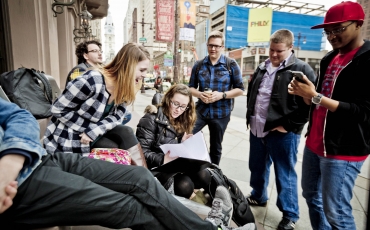
Start your application
Begin your application today. Our admissions team will help you throughout the process.
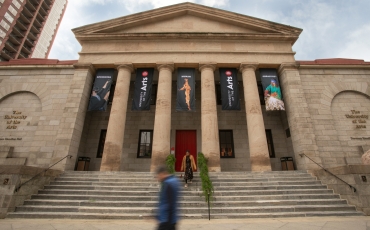
See UArts for yourself
The best way to get to know UArts is by taking a virtual tour of our campus facilities.
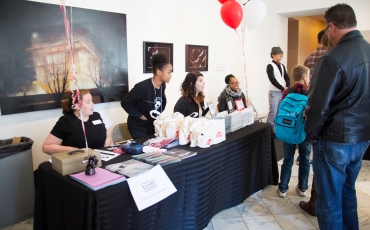
Not sure where to start?
We're glad you want to learn more. Our admissions team is happy to send additional information about our school.

